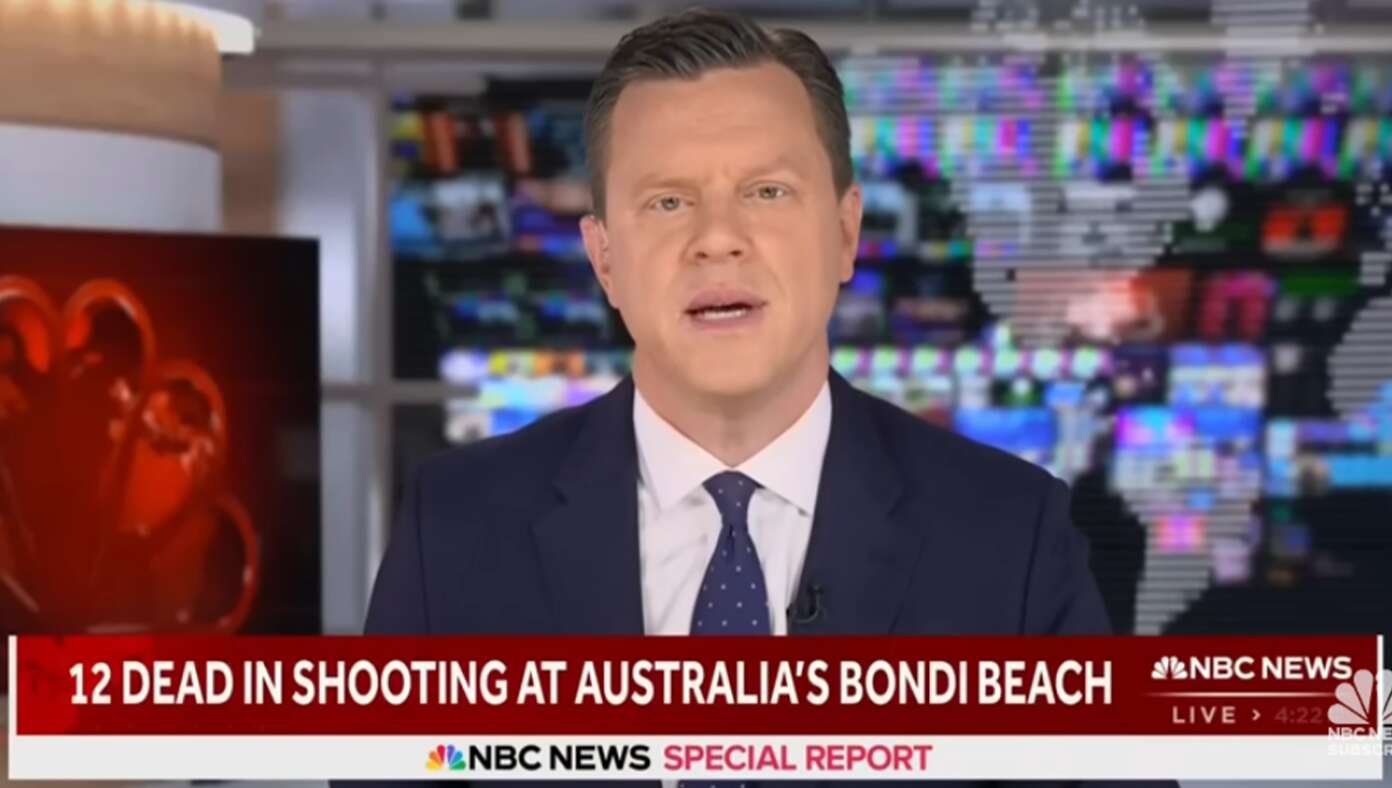
WORLD — Fake news media across the globe have reported that a mass shooting occurred in Australia, which is literally impossible because guns are illegal there.
Read More
WORLD — Fake news media across the globe have reported that a mass shooting occurred in Australia, which is literally impossible because guns are illegal there.
Read More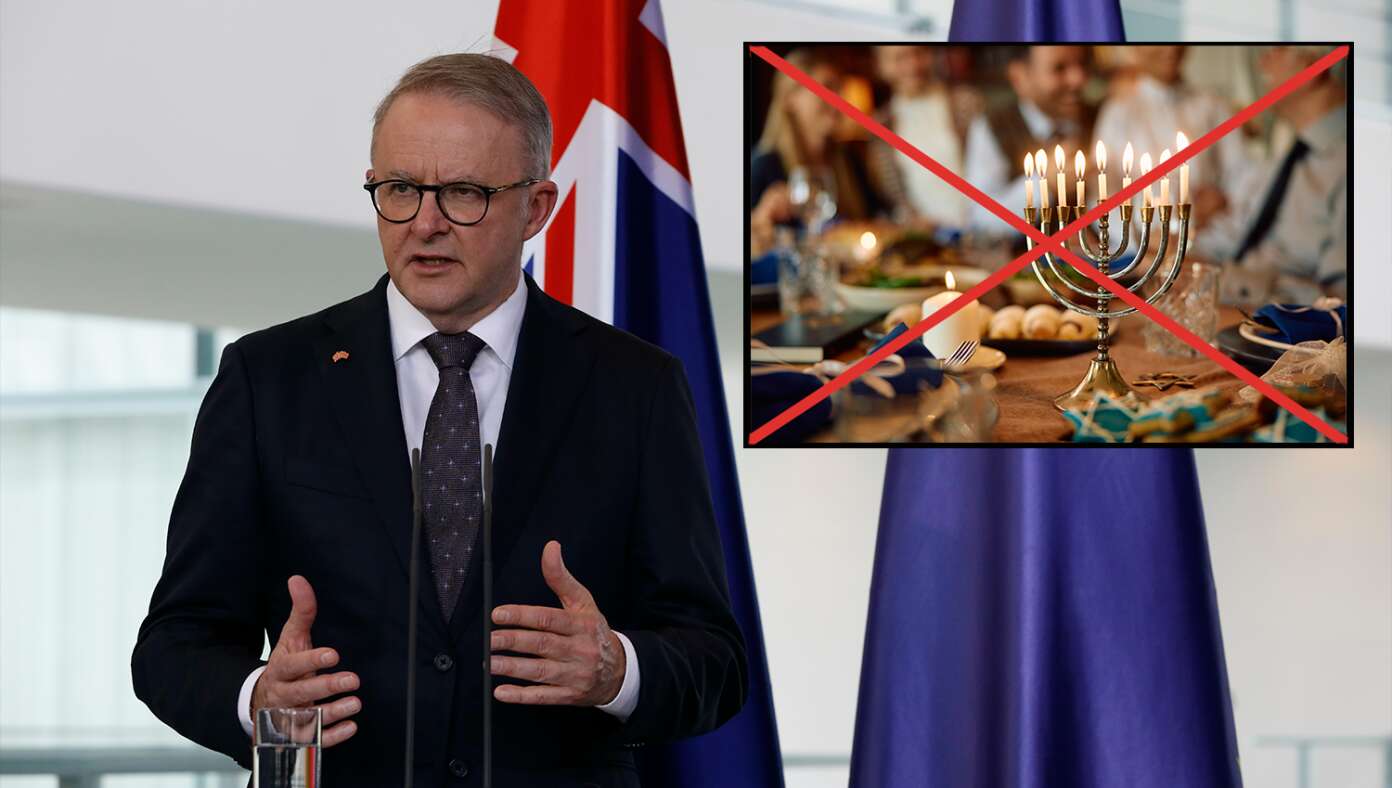
MELBOURNE — To stem the growing tide of violence against Jewish citizens, the Australian government has moved to officially ban the celebration of Hanukkah.
Read More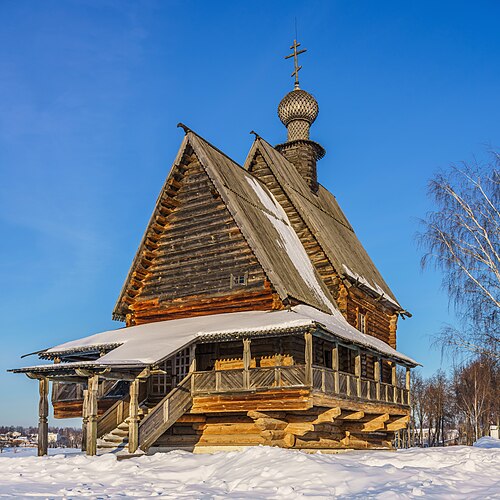
![Tri-County raises record-breaking $2 million for scholarships #Catholic - Tri-County Scholarship Fund (TCSF), a longstanding partner to the Paterson Diocese in providing scholarships for financially disadvantaged New Jersey children to receive a values-based, high-quality education, celebrated its 44th Annual Awards Dinner on Nov. 4, raising a record-setting $2 million to provide 970 K-12 scholarships.
More than 700 supporters, benefactors, educators, and community leaders gathered for the event at The Legacy Castle in Pompton Plains with a blessing offered by Bishop Kevin J. Sweeney of the Paterson Diocese, a TCSF trustee.
“We are profoundly grateful for the generosity in honor of this year’s award honorees, and in support of our students,” said Prudence Pigott, President of Tri-County. “Every dollar raised directly changes the trajectory of a child’s life. These scholarships provide access, stability, and hope—and our students repay that investment with hard work and tremendous promise.”
The TCSF’s Making a Difference honorees were John and Joanne Harrington of St. Luke Parish in the Long Valley neighborhood of Washington Township, N.J., owners of the family-run, multi-generational Harrington Construction. The Harringtons were recognized for their longstanding generosity, community leadership, and commitment to expanding educational opportunities for children.
Click here to subscribe to our weekly newsletter.
Benedictine Father Michael Tidd, headmaster of Delbarton School in Morristown, N.J., introduced the Harringtons, praising their “quiet leadership, generosity, and commitment to others,” adding that they embody the “spirit of trusteeship — always doing what is necessary to help people and communities not only survive, but thrive and flourish.”
In their remarks, the Joanne Harrington highlighted the impact of Tri-County students, saying, “The accomplished scholarship students you meet tonight are shining examples of the power of educational opportunity. They are truly amazing and inspiring individuals.” John Harrington reflected on one scholarship student’s story, noting, “By helping young people in New Jersey acquire a quality education, we can all make a lasting impact on our community.”
That evening, the TCSF’s Leadership and Hall of Fame Honorees were Jocelyn Grahame and Mike Goldman.
Jocelyn Grahame is the managing Partner of McKinsey & Company’s New Jersey office, who received the Leadership Award for her professional accomplishments and for McKinsey’s pro bono support of Tri-County’s strategic planning efforts. Grahame said, “Tonight reminds me of what communities can achieve when each of us uses our influence to lift others up—to help more students dream bigger and reach further.”
Mike Goldman, president and CEO of NFP, received the Hall of Fame Award. Introduced by past Tri-County Hall of Fame honoree Eric Andersen of Aon, Goldman reflected on his upbringing as the child of two educators and shared, “Tri-County gives children who need an opportunity the chance to access schools and environments where they are truly supported — and where the expectations are created that their future is really in their hands.”
The following students from diocesan Catholic schools played a central role during the evening:
Cecily, a freshman at DePaul Catholic High School in Wayne, N.J., opened the event with a powerful, a cappella rendition of the Star-Spangled Banner, earning a standing ovation from the audience of 700 guests.
Bella, a senior at Pope John XXIII Regional High School in Sparta, N.J., delivered the night’s keynote student address. She shared her story of the hardships her family has faced — losing her father to COVID-19 and supporting her mother through illness — and how her Tri-County scholarship opened the door to stability, hope, and a bright future. Her testimony moved the room to silence — and then to its feet.
Founded in 1981, the Tri-County Scholarship Fund addresses educational inequities by providing partial scholarships to financially disadvantaged K — 12 students in New Jersey. The organization partners with accredited, independent elementary and secondary schools to offer students safe, values-based educational opportunities that foster academic and personal growth. Over the past 44 years, TCSF has awarded more than 39,000 scholarships totaling over $41 million, enabling students to attend safe, high-quality schools, achieve a 100 percent high school graduation rate, and go on to college and productive careers.
Full replays of the honoree remarks, Bella’s speech, and Cecily’s performance can be viewed here.
[See image gallery at beaconnj.org]](http://unitedyam.com/wp-content/uploads/2025/12/tri-county-raises-record-breaking-2-million-for-scholarships-catholic-tri-county-scholarship-fund-tcsf-a-longstanding-partner-to-the-paterson-diocese-in-providing-scholarships-for-financially-d.jpg)
Tri-County raises record-breaking $2 million for scholarships #Catholic – ![]()
Tri-County Scholarship Fund (TCSF), a longstanding partner to the Paterson Diocese in providing scholarships for financially disadvantaged New Jersey children to receive a values-based, high-quality education, celebrated its 44th Annual Awards Dinner on Nov. 4, raising a record-setting $2 million to provide 970 K-12 scholarships.
More than 700 supporters, benefactors, educators, and community leaders gathered for the event at The Legacy Castle in Pompton Plains with a blessing offered by Bishop Kevin J. Sweeney of the Paterson Diocese, a TCSF trustee.
“We are profoundly grateful for the generosity in honor of this year’s award honorees, and in support of our students,” said Prudence Pigott, President of Tri-County. “Every dollar raised directly changes the trajectory of a child’s life. These scholarships provide access, stability, and hope—and our students repay that investment with hard work and tremendous promise.”
The TCSF’s Making a Difference honorees were John and Joanne Harrington of St. Luke Parish in the Long Valley neighborhood of Washington Township, N.J., owners of the family-run, multi-generational Harrington Construction. The Harringtons were recognized for their longstanding generosity, community leadership, and commitment to expanding educational opportunities for children.
Benedictine Father Michael Tidd, headmaster of Delbarton School in Morristown, N.J., introduced the Harringtons, praising their “quiet leadership, generosity, and commitment to others,” adding that they embody the “spirit of trusteeship — always doing what is necessary to help people and communities not only survive, but thrive and flourish.”
In their remarks, the Joanne Harrington highlighted the impact of Tri-County students, saying, “The accomplished scholarship students you meet tonight are shining examples of the power of educational opportunity. They are truly amazing and inspiring individuals.” John Harrington reflected on one scholarship student’s story, noting, “By helping young people in New Jersey acquire a quality education, we can all make a lasting impact on our community.”
That evening, the TCSF’s Leadership and Hall of Fame Honorees were Jocelyn Grahame and Mike Goldman.
Jocelyn Grahame is the managing Partner of McKinsey & Company’s New Jersey office, who received the Leadership Award for her professional accomplishments and for McKinsey’s pro bono support of Tri-County’s strategic planning efforts. Grahame said, “Tonight reminds me of what communities can achieve when each of us uses our influence to lift others up—to help more students dream bigger and reach further.”
Mike Goldman, president and CEO of NFP, received the Hall of Fame Award. Introduced by past Tri-County Hall of Fame honoree Eric Andersen of Aon, Goldman reflected on his upbringing as the child of two educators and shared, “Tri-County gives children who need an opportunity the chance to access schools and environments where they are truly supported — and where the expectations are created that their future is really in their hands.”
The following students from diocesan Catholic schools played a central role during the evening:
Founded in 1981, the Tri-County Scholarship Fund addresses educational inequities by providing partial scholarships to financially disadvantaged K — 12 students in New Jersey. The organization partners with accredited, independent elementary and secondary schools to offer students safe, values-based educational opportunities that foster academic and personal growth. Over the past 44 years, TCSF has awarded more than 39,000 scholarships totaling over $41 million, enabling students to attend safe, high-quality schools, achieve a 100 percent high school graduation rate, and go on to college and productive careers.
Full replays of the honoree remarks, Bella’s speech, and Cecily’s performance can be viewed here.
[See image gallery at beaconnj.org] – ![]() Tri-County Scholarship Fund (TCSF), a longstanding partner to the Paterson Diocese in providing scholarships for financially disadvantaged New Jersey children to receive a values-based, high-quality education, celebrated its 44th Annual Awards Dinner on Nov. 4, raising a record-setting $2 million to provide 970 K-12 scholarships. More than 700 supporters, benefactors, educators, and community leaders gathered for the event at The Legacy Castle in Pompton Plains with a blessing offered by Bishop Kevin J. Sweeney of the Paterson Diocese, a TCSF trustee. “We are profoundly grateful for the generosity in honor of this year’s award honorees, and in support of our
Tri-County Scholarship Fund (TCSF), a longstanding partner to the Paterson Diocese in providing scholarships for financially disadvantaged New Jersey children to receive a values-based, high-quality education, celebrated its 44th Annual Awards Dinner on Nov. 4, raising a record-setting $2 million to provide 970 K-12 scholarships. More than 700 supporters, benefactors, educators, and community leaders gathered for the event at The Legacy Castle in Pompton Plains with a blessing offered by Bishop Kevin J. Sweeney of the Paterson Diocese, a TCSF trustee. “We are profoundly grateful for the generosity in honor of this year’s award honorees, and in support of our
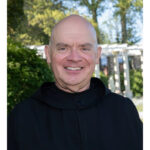
Father Edward Seton Fittin appointed prior-administrator of Morristown abbey #Catholic – ![]()
Benedictine Abbot Jonathan Licari, president of the American Cassinese Congregation of Benedictine monasteries, named Benedictine Father Edward Seton Fittin, prior-administrator of St. Mary’s Abbey in Morristown, N.J., for a three-year term, effective Nov. 30.
Abbot Licari had served as St. Mary’s administrator since Aug. 1, 2022. Father Fittin had been the abbey’s prior.
As St. Mary’s prior and administrator, Father Fittin holds all the usual responsibilities and authority of the abbot of St. Mary’s Abbey, without the title of “abbot.” He will aid the monks of the abbey as they plan for their future and discern what kind of person they wish to serve as their permanent abbot. Together with the monastic community, Father Fittin will determine when the next abbatial election will take place.
Father Fittin’s wide range of experiences well suit him for becoming St. Mary’s prior-administrator. He is a 1982 graduate of Delbarton School, an all-boys Catholic college prep school located on the campus of St. Mary’s Abbey, run by the Benedictine monks.
In 1986, Father Fittin Edward earned a bachelor’s degree cum laude from Mount St. Mary’s University in Emmitsburg, Md. He also received the Agostino and Anna Travaioli Memorial Prize for distinguished work in art history.
Father Fittin professed monastic vows in 1988, made his solemn profession of vows in 1991, and was ordained priest in 1993. In 1993, he also earned a Master of Divinity from the Catholic University of America in Washington, D.C.
After ordination, Father Fittin started teaching theology at Delbarton and chaired the theology department for 20 years.
For 10 years, Father Fittin served Delbarton’s campus ministry, serving as director for six years. He also was involved in community service projects, such as Operation Smile missions to the Philippines and Romania. For 25 years, Father Fittin has coordinated an exchange program with Glenstal Abbey School in Limerick, Ireland.
Also at Delbarton, Father Fittin taught advanced placement art history for 12 years and served on the design and development committee for the Fine Arts Center, which opened in 2006, including the design of its iconic clock tower.
At St. Mary’s Abbey, Father Fittin served for two years as Abbey vocation director and as director of liturgy for more than two decades. He was Sunday chaplain to the Religious Teachers Filippini, also in Morristown, and a weekend associate at area parishes. He is currently a weekend associate at Our Lady of Perpetual Help Parish in Bernardsville, N.J., in the Metuchen Diocese.
In 2018, Father Fittin was appointed claustral prior and abbey church rector. The former role includes the day-to-day operations of the monastery and substitutes for the abbot in his absence. The latter position coordinates sacramental celebration in the abbey church for alumni and friends of the abbey.
– ![]() Benedictine Abbot Jonathan Licari, president of the American Cassinese Congregation of Benedictine monasteries, named Benedictine Father Edward Seton Fittin, prior-administrator of St. Mary’s Abbey in Morristown, N.J., for a three-year term, effective Nov. 30. Abbot Licari had served as St. Mary’s administrator since Aug. 1, 2022. Father Fittin had been the abbey’s prior. As St. Mary’s prior and administrator, Father Fittin holds all the usual responsibilities and authority of the abbot of St. Mary’s Abbey, without the title of “abbot.” He will aid the monks of the abbey as they plan for their future and discern what kind of person
Benedictine Abbot Jonathan Licari, president of the American Cassinese Congregation of Benedictine monasteries, named Benedictine Father Edward Seton Fittin, prior-administrator of St. Mary’s Abbey in Morristown, N.J., for a three-year term, effective Nov. 30. Abbot Licari had served as St. Mary’s administrator since Aug. 1, 2022. Father Fittin had been the abbey’s prior. As St. Mary’s prior and administrator, Father Fittin holds all the usual responsibilities and authority of the abbot of St. Mary’s Abbey, without the title of “abbot.” He will aid the monks of the abbey as they plan for their future and discern what kind of person
Blessed be God.
Blessed be His Holy Name.
Blessed be Jesus Christ, true God and true man.
Blessed be the Name of Jesus.
Blessed be His Most Sacred Heart.
Blessed be His Most Precious Blood.
Blessed be Jesus in the Most Holy Sacrament of the Altar.
Blessed be the Holy Spirit, the Paraclete.
Blessed be the great Mother of God, Mary most holy.
Blessed be her holy and Immaculate Conception.
Blessed be her glorious Assumption.
Blessed be the …
Read More
![Randolph parish rejoices in receiving Colombian-born pastor #Catholic - Resurrection Parish in Randolph, N.J., on Dec. 7, joyfully welcomed Bishop Kevin J. Sweeney, who installed Father Yojaneider Garcia as pastor of the parish during a Mass the bishop celebrated.
Bishop Sweeney named Father Garcia as Resurrection’s pastor effective July 1, while continuing as director of Catechesis and Faith Formation for the Paterson Diocese in New Jersey. The Colombian-born priest is also a diocesan Censor Librorum, an ecclesiastical authority charged with reviewing texts for doctrinal accuracy. Father Garcia is also participating in executive-level coursework through Boston College as part of a new project.
Click here to subscribe to our weekly newsletter.
Bishop Arthur J. Serratelli ordained Father Garcia on May 24, 2014.
“I am very grateful to all the people who participated in my installation as pastor. I was truly overwhelmed by the presence of so many parishioners and friends, and by the beautiful expressions of love and support you offered me. Thank you very much to everyone who attended,” Father Garcia posted on social media.
During his visit, Bishop Sweeney also blessed a room at Resurrection for children and their families to use during the parish’s Inclusive & Accessible Masses.
BEACON PHOTOS | JOE GIGLI
[See image gallery at beaconnj.org]](http://unitedyam.com/wp-content/uploads/2025/12/randolph-parish-rejoices-in-receiving-colombian-born-pastor-catholic-resurrection-parish-in-randolph-n-j-on-dec-7-joyfully-welcomed-bishop-kevin-j-sweeney-who-installed-father-yojaneider-gar.jpg)
Randolph parish rejoices in receiving Colombian-born pastor #Catholic – ![]()
Resurrection Parish in Randolph, N.J., on Dec. 7, joyfully welcomed Bishop Kevin J. Sweeney, who installed Father Yojaneider Garcia as pastor of the parish during a Mass the bishop celebrated.
Bishop Sweeney named Father Garcia as Resurrection’s pastor effective July 1, while continuing as director of Catechesis and Faith Formation for the Paterson Diocese in New Jersey. The Colombian-born priest is also a diocesan Censor Librorum, an ecclesiastical authority charged with reviewing texts for doctrinal accuracy. Father Garcia is also participating in executive-level coursework through Boston College as part of a new project.
Bishop Arthur J. Serratelli ordained Father Garcia on May 24, 2014.
“I am very grateful to all the people who participated in my installation as pastor. I was truly overwhelmed by the presence of so many parishioners and friends, and by the beautiful expressions of love and support you offered me. Thank you very much to everyone who attended,” Father Garcia posted on social media.
During his visit, Bishop Sweeney also blessed a room at Resurrection for children and their families to use during the parish’s Inclusive & Accessible Masses.
– ![]() Resurrection Parish in Randolph, N.J., on Dec. 7, joyfully welcomed Bishop Kevin J. Sweeney, who installed Father Yojaneider Garcia as pastor of the parish during a Mass the bishop celebrated. Bishop Sweeney named Father Garcia as Resurrection’s pastor effective July 1, while continuing as director of Catechesis and Faith Formation for the Paterson Diocese in New Jersey. The Colombian-born priest is also a diocesan Censor Librorum, an ecclesiastical authority charged with reviewing texts for doctrinal accuracy. Father Garcia is also participating in executive-level coursework through Boston College as part of a new project. Click here to subscribe to our weekly
Resurrection Parish in Randolph, N.J., on Dec. 7, joyfully welcomed Bishop Kevin J. Sweeney, who installed Father Yojaneider Garcia as pastor of the parish during a Mass the bishop celebrated. Bishop Sweeney named Father Garcia as Resurrection’s pastor effective July 1, while continuing as director of Catechesis and Faith Formation for the Paterson Diocese in New Jersey. The Colombian-born priest is also a diocesan Censor Librorum, an ecclesiastical authority charged with reviewing texts for doctrinal accuracy. Father Garcia is also participating in executive-level coursework through Boston College as part of a new project. Click here to subscribe to our weekly
![In winter cold, advocates pray for unborn in Morristown #Catholic - With light snow on the ground, faithful bundled up in coats, hats, and gloves in the winter cold on Dec. 6 in Morristown, N.J., to proclaim the Respect Life message during Bishop Kevin J. Sweeney’s monthly Mass for Life and Rosary Procession.
That morning Bishop Sweeney celebrated Mass at St. Margaret of Scotland Church in Morristown. Father Sebastian Munoz, parochial vicar of St. Margaret’s, concelebrated the liturgy with the bishop. Deacon Tim Holden of the parish assisted with the Mass.
Click here to subscribe to our weekly newsletter.
Then, Bishop Sweeney led an outdoor rosary procession for life to Planned Parenthood on Speedwell Avenue after the Mass. A few of people carried signs in English and Spanish that promoted respect for life as they prayed the rosary for an end to abortion.
A Mass and procession for life is held on the first Saturday of the month at 8 a.m. at St. Margaret’s. Priests and faithful from around the diocese are invited to join.
BEACON PHOTOS | JOE GIGLI
[See image gallery at beaconnj.org]](http://unitedyam.com/wp-content/uploads/2025/12/in-winter-cold-advocates-pray-for-unborn-in-morristown-catholic-with-light-snow-on-the-ground-faithful-bundled-up-in-coats-hats-and-gloves-in-the-winter-cold-on-dec-6-in-morristown-n-j-to-p.jpg)
In winter cold, advocates pray for unborn in Morristown #Catholic – ![]()
With light snow on the ground, faithful bundled up in coats, hats, and gloves in the winter cold on Dec. 6 in Morristown, N.J., to proclaim the Respect Life message during Bishop Kevin J. Sweeney’s monthly Mass for Life and Rosary Procession.
That morning Bishop Sweeney celebrated Mass at St. Margaret of Scotland Church in Morristown. Father Sebastian Munoz, parochial vicar of St. Margaret’s, concelebrated the liturgy with the bishop. Deacon Tim Holden of the parish assisted with the Mass.
Then, Bishop Sweeney led an outdoor rosary procession for life to Planned Parenthood on Speedwell Avenue after the Mass. A few of people carried signs in English and Spanish that promoted respect for life as they prayed the rosary for an end to abortion.
A Mass and procession for life is held on the first Saturday of the month at 8 a.m. at St. Margaret’s. Priests and faithful from around the diocese are invited to join.
– ![]() With light snow on the ground, faithful bundled up in coats, hats, and gloves in the winter cold on Dec. 6 in Morristown, N.J., to proclaim the Respect Life message during Bishop Kevin J. Sweeney’s monthly Mass for Life and Rosary Procession. That morning Bishop Sweeney celebrated Mass at St. Margaret of Scotland Church in Morristown. Father Sebastian Munoz, parochial vicar of St. Margaret’s, concelebrated the liturgy with the bishop. Deacon Tim Holden of the parish assisted with the Mass. Click here to subscribe to our weekly newsletter. Then, Bishop Sweeney led an outdoor rosary procession for life to Planned
With light snow on the ground, faithful bundled up in coats, hats, and gloves in the winter cold on Dec. 6 in Morristown, N.J., to proclaim the Respect Life message during Bishop Kevin J. Sweeney’s monthly Mass for Life and Rosary Procession. That morning Bishop Sweeney celebrated Mass at St. Margaret of Scotland Church in Morristown. Father Sebastian Munoz, parochial vicar of St. Margaret’s, concelebrated the liturgy with the bishop. Deacon Tim Holden of the parish assisted with the Mass. Click here to subscribe to our weekly newsletter. Then, Bishop Sweeney led an outdoor rosary procession for life to Planned
Developed together, the twin Mariner 1 and 2 spacecraft were based on the Ranger lunar probe and planned for a joint mission to our closest neighboring planet. The probes featured seven instruments for studying Venus’ atmosphere, temperature, and magnetic field. On July 22, 1962, Mariner 1 launched, but the spacecraft was destroyed only minutes intoContinue reading “Dec. 14, 1961: Mariner 2 flies by Venus”
The post Dec. 14, 1961: Mariner 2 flies by Venus appeared first on Astronomy Magazine.
Read More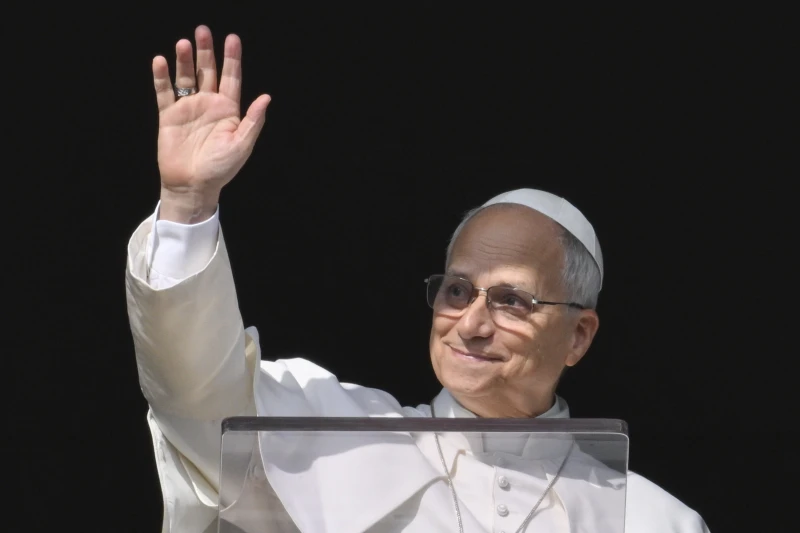

Vatican City, Dec 14, 2025 / 08:05 am (CNA).
Pope Leo XIV on Sunday voiced deep concern over renewed fighting in the eastern Democratic Republic of Congo, urging an immediate end to violence and a return to dialogue in line with ongoing peace efforts.
After leading pilgrims gathered in St. Peter’s Square in praying the Angelus on the Third Sunday of Advent, the pope said he was “following with deep concern the resumption of fighting in the eastern part of the Democratic Republic of Congo.”
“While expressing my closeness to the people, I urge the parties in the conflict to cease all forms of violence and to seek constructive dialogue, respecting the ongoing peace process,” he said.
The pope’s appeal came amid reports of intensified clashes involving the M23 rebel group in the mineral-rich eastern region, despite a recently signed peace agreement between Congolese and Rwandan leaders.
Pope Leo also recalled recent beatifications of martyrs in Spain and France, praising their fidelity to the faith amid persecution. “Let us praise the Lord for these martyrs, courageous witnesses to the Gospel, persecuted and killed for remaining close to their people and faithful to the Church,” he said.
Earlier, in his catechesis before leading the Angelus, Pope Leo reflected on the Gospel reading for the Third Sunday of Advent, which presents John the Baptist imprisoned for his preaching yet still seeking the truth about Jesus.
From prison, John hears “about the works of Christ” and sends his disciples to ask whether Jesus is truly the one who is to come, the pope noted. Jesus’ response, he said, points not to abstract claims but to concrete signs.
“Christ announces who he is by what he does. And what he does is a sign of salvation for all of us,” Pope Leo said. Encountering Jesus, he explained, restores meaning to lives marked by darkness and suffering: “The blind see, the mute speak, the deaf hear… Even the dead, who are completely lifeless, come back to life. This is the Gospel of Jesus, the good news proclaimed to the poor.”
“The words of Jesus free us from the prison of despair and suffering,” the pope said, adding that Christ “gives voice to the oppressed and to those whose voices have been silenced by violence and hatred” and “defeats ideologies that make us deaf to the truth.”
Concluding his reflection, Pope Leo said that Advent calls Christians to unite their expectation of the Savior with attentiveness to God’s action in the world. “Then we will be able to experience the joy of freedom in encountering our Savior,” he said, echoing the Church’s celebration of Gaudete Sunday.
This story was first published in two parts by ACI Prensa, CNA’s Spanish-language news partner. It has been translated and adapted by CNA.
Read More![Representation of the Way of the Cross in Mexico recognized as UNESCO heritage site - #Catholic -
Holy Week in Mexico City’s Iztapalapa sector. / Credit: Photo courtesy of Holy Week Organizing Committee in Iztapalapa
Puebla, Mexico, Dec 14, 2025 / 08:00 am (CNA).
The perennially popular representation of the passion, death, and resurrection of Christ, held every Holy Week in the Iztapalapa sector of Mexico City, has been declared a Cultural Heritage of Humanity by the United Nations Educational, Scientific, and Cultural Organization (UNESCO).The decision was made during a UNESCO meeting in New Delhi, India, where the nomination of the Iztapalapa Way of the Cross was reviewed and approved.Speaking at the event, Edaly Quiroz, deputy director of Mexico’s National Institute of Anthropology and History, said that Holy Week in Iztapalapa is not merely a theatrical performance but a manifestation “of unity, faith, and resilience that brings together thousands of people in a collective exercise of memory, identity, and participation.”On its website, UNESCO states that this list includes “practices, knowledge, and expressions that communities recognize as part of their cultural identity” and emphasizes the need to protect them for future generations.A scene during Holy Week in Ixtapalapa. Credit: Holy Week Organizing Committee in IxtapalapaJuan Pablo Serrano, custodian of the image of the Lord of the Little Cave in the Iztapalapa Cathedral, explained in an interview with ACI Prensa, CNA’s Spanish-language news partner, that this tradition is closely linked to the origin of the image and a 19th-century promise made by the community.He recounted that in 1687, an image of Christ was being transported from Oaxaca to Mexico City for restoration. During the journey, those carrying it rested in a cave in the Hill of the Star, and when they tried to resume their trip, “they could no longer move the image.”“It was understood that the image representing Christ in the tomb wanted to remain there. [Being in a cave] a very particular devotion began to develop,” he noted.Serrano explained that the direct connection with the depiction of the Stations of the Cross arose in 1833 during a cholera epidemic. Faced with the high death toll, the inhabitants carried the image in procession and asked for Christ’s intercession. After several days of prayer, the plague ceased, an event that was interpreted as a miracle.Approximately 2 million attendees in 2025Following that event, the community vowed to reenact the passion, death, and resurrection of Christ every year as a sign of gratitude, and each year the tradition has grown, both in the number of participants and the audience. In Holy Week 2025 alone, it drew approximately 2 million people.Serrano expressed his joy at the recognition, which he said “is something we [the residents] always boast about with pride and honor.”He noted that during the years he has been in charge of the image he has witnessed the arrival of thousands of visitors, including people who do not identify as Catholic, who “when drawn by the representation, visit the image, visit the church, and experience a true reflection in their hearts and a real conversion.”Serrano emphasized that this new status represents a greater commitment for the community so the celebration can continue to be “an expression of gratitude to God. Everything done as an offering to God ultimately becomes [a form of] catechesis and evangelization.”This story was first published by ACI Prensa, CNA’s Spanish-language news partner. It has been translated and adapted by CNA.](http://unitedyam.com/wp-content/uploads/2025/12/representation-of-the-way-of-the-cross-in-mexico-recognized-as-unesco-heritage-site-catholic-holy-week-in-mexico-citys-iztapalapa-sector-credit-photo-courtesy-of-holy-week-organi.webp)

Puebla, Mexico, Dec 14, 2025 / 08:00 am (CNA).
The perennially popular representation of the passion, death, and resurrection of Christ, held every Holy Week in the Iztapalapa sector of Mexico City, has been declared a Cultural Heritage of Humanity by the United Nations Educational, Scientific, and Cultural Organization (UNESCO).
The decision was made during a UNESCO meeting in New Delhi, India, where the nomination of the Iztapalapa Way of the Cross was reviewed and approved.
Speaking at the event, Edaly Quiroz, deputy director of Mexico’s National Institute of Anthropology and History, said that Holy Week in Iztapalapa is not merely a theatrical performance but a manifestation “of unity, faith, and resilience that brings together thousands of people in a collective exercise of memory, identity, and participation.”
On its website, UNESCO states that this list includes “practices, knowledge, and expressions that communities recognize as part of their cultural identity” and emphasizes the need to protect them for future generations.

Juan Pablo Serrano, custodian of the image of the Lord of the Little Cave in the Iztapalapa Cathedral, explained in an interview with ACI Prensa, CNA’s Spanish-language news partner, that this tradition is closely linked to the origin of the image and a 19th-century promise made by the community.
He recounted that in 1687, an image of Christ was being transported from Oaxaca to Mexico City for restoration. During the journey, those carrying it rested in a cave in the Hill of the Star, and when they tried to resume their trip, “they could no longer move the image.”
“It was understood that the image representing Christ in the tomb wanted to remain there. [Being in a cave] a very particular devotion began to develop,” he noted.
Serrano explained that the direct connection with the depiction of the Stations of the Cross arose in 1833 during a cholera epidemic. Faced with the high death toll, the inhabitants carried the image in procession and asked for Christ’s intercession. After several days of prayer, the plague ceased, an event that was interpreted as a miracle.
Following that event, the community vowed to reenact the passion, death, and resurrection of Christ every year as a sign of gratitude, and each year the tradition has grown, both in the number of participants and the audience. In Holy Week 2025 alone, it drew approximately 2 million people.
Serrano expressed his joy at the recognition, which he said “is something we [the residents] always boast about with pride and honor.”
He noted that during the years he has been in charge of the image he has witnessed the arrival of thousands of visitors, including people who do not identify as Catholic, who “when drawn by the representation, visit the image, visit the church, and experience a true reflection in their hearts and a real conversion.”
Serrano emphasized that this new status represents a greater commitment for the community so the celebration can continue to be “an expression of gratitude to God. Everything done as an offering to God ultimately becomes [a form of] catechesis and evangelization.”
This story was first published by ACI Prensa, CNA’s Spanish-language news partner. It has been translated and adapted by CNA.
Read More
U.S. — Podcaster and renowned private investigator Candace Owens has vowed to honor Charlie Kirk’s legacy by doing everything in her power to destroy it.
Read More
RICHMOND, KY — Local husband Kevin Manthei fell ill over the weekend, requiring constant care and attention from his wife Bethany, who is currently much more ill.
Read More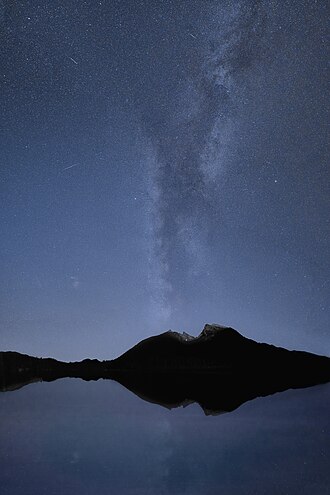
| Picture of the day |
|---|

|
|
Milky way seen over the Hochkalter Massif and Lake Hintersee in the German region of Berchtesgadener Land.
|
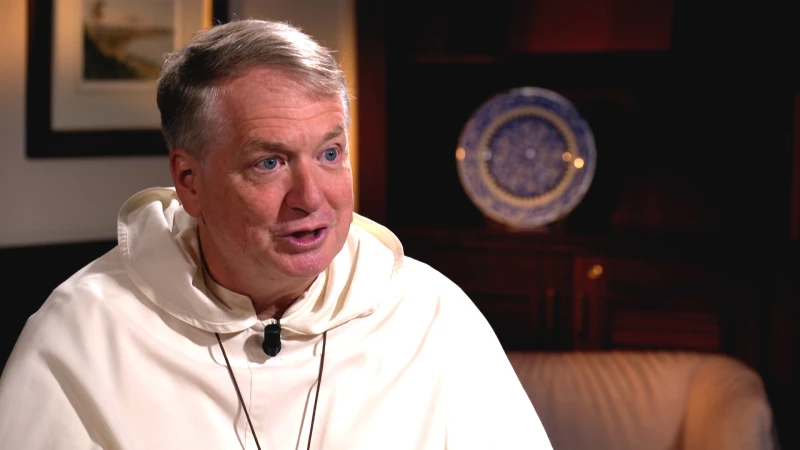

EWTN News, Dec 14, 2025 / 07:02 am (CNA).
Catholic leaders in Australia have responded with prayer and condemnation of antisemitism following what police described as a terrorist attack on a Hanukkah celebration at Sydney’s Bondi Beach on Sunday that left 12 people dead and 29 others injured.
Archbishop Anthony Fisher of Sydney called for prayer and the intercession of the Virgin Mary in the immediate aftermath of the Dec. 14 shooting, which authorities said included one of the alleged gunmen among the dead.
“As we follow the horrific news coming from this evening’s shooting at Bondi Beach, let us pray for those who have been killed or injured,” Fisher said in a statement released shortly after the attack. “May Our Lady, Queen of Peace, intercede for all affected, and for our beloved city at this time.”
The archbishop also offered prayers for the “many who were forced to run for their lives” and for emergency service workers responding at the scene.
Archbishop Timothy Costelloe SDB, president of the Australian Catholic Bishops Conference, said the violence had “shaken Australians to the core” and condemned what he described as “the scourge of antisemitism.”
“The twisted motives behind those who perpetrated these terrible acts are now clearly linked with the scourge of antisemitism,” Costelloe said in a Dec. 14 statement. “This is a shocking and deeply distressing reality which calls into question our own understanding of ourselves as Australians.”
He warned that “blind prejudice and hatred points to a dark and destructive stain in our society which threatens not just our Jewish brothers and sisters but, in fact, all of us.”
“We must rediscover our conviction that nothing can ever justify this destructive violence,” he said, urging Australians to ensure that the “justifiable anger we feel does not breed even more violence and hatred.”
The attack occurred Sunday evening during the “Chanukah by the Sea” event on the first night of Hanukkah. Authorities said two gunmen opened fire on the Jewish community gathering shortly after sunset. One alleged shooter was killed at the scene, while a second was taken into custody. Police said they were investigating whether a third person may have been involved.
Costelloe praised what he described as the “remarkable courage of the police and other first responders, and individual acts of bravery as people sought to protect each other.”
New South Wales Premier Chris Minns highlighted the actions of a bystander who wrestled one of the gunmen to the ground and removed his shotgun, calling him a “genuine hero” who helped save lives, according to local media reports.
New South Wales Police Commissioner Mal Lanyon said authorities had found improvised explosive devices in a vehicle linked to the deceased attacker. He declared the shooting a terrorist incident, citing the timing on the first night of Hanukkah, the nature of the weapons used, and the discovery of the explosives. A bomb disposal unit was deployed to the scene.
Among the 29 people hospitalized were two police officers who were injured while responding to the attack, reported the Australian Broadcasting Corporation.
Prime Minister Anthony Albanese described the shooting as a “dark moment for our nation,” calling it a “targeted attack on Jewish Australians” and an “act of evil.”
“An attack on Jewish Australians is an attack on every Australian,” Albanese said.
Costelloe concluded by urging unity and peace. “We join with all those who condemn such terrible violence and plead with all Australians to reject any impulse towards hatred and violence and instead to recommit ourselves to being peacemakers in our families, amongst our friends and in our wider society,” he said.
Last update on Dec. 14 at 7:48 a.m. ET with further details.
Read More![Ancient Advent Mass gains new interest among younger Catholics #Catholic
The Rorate Caeli Advent Mass celebrated at The National Shrine of Our Lady of Champion. / Credit: The National Shrine of Our Lady of Champion
CNA Staff, Dec 14, 2025 / 06:00 am (CNA).
Advent is a season filled with rich Catholic traditions, but a slightly lesser-known one is growing in popularity among younger Catholics. The ancient liturgy of the Rorate Caeli Advent Mass honors the Blessed Virgin Mary through a Mass celebrated at dawn, in complete darkness, and lit only by candles, which symbolizes Christ, the Light of the World, entering into the world with Mary as the vessel. Emerging in the Middle Ages, the Rorate Caeli Mass gets its name from the prophecy of Isaiah. Rorate Caeli is Latin for “drop down, ye heavens.” These are the opening words of this liturgy’s Introit, which is used as an opening psalm or entrance antiphon and comes from Isaiah 45:8.Father Tony Stephens, rector at the National Shrine of Our Lady of Champion in Champion, Wisconsin, calls this Mass “a teachable moment.”“As all of us are gathered in the church, only lit with the candles, slowly the light begins coming in through the windows and it’s like the light of Christ,” he told CNA. The process symbolizes “the light of Christ coming into our lives, slowly but surely and progressively as we go through life.”“And just like that light begins to come in through the windows, as the physical sun rises, so in our journey as Catholics, the closer we get to Christ, the more his light shines in our life,” he said. Fr. Nathaneal Mudd, CPM, celebrates the Rorate Caeli Advent Mass at the National Shrine of Our Lady of Champion in 2024. Credit: The National Shrine of Our Lady of ChampionStephens has been rector of the National Shrine of Our Lady of Champion for two years but was scheduled to celebrate the Rorate Caeli Mass there for the first time on Dec. 13. The shrine is the first and only approved Marian apparition site in the United States. It was here that the Blessed Mother is believed to have appeared to Adele Brise in 1859. When speaking about the Blessed Mother’s role in Advent, Stephens described it as “a season of anticipating Our Lord, but when you look at the subtext of Advent, things about Mary are everywhere — in the readings and her role in salvation history is so important. And so that’s, again, part of the reason you have these special Marian Masses honoring her during this Advent season.”He also highlighted the fact that this ancient Mass is seeing a resurgence in popularity and credited Pope Benedict XVI, in part, for reintroducing Catholics to older, traditional practices and his “desire of the hermeneutic of continuity.” “He in his pontificate really emphasized a desire to have that continuity between the earlier traditions of the Church, even prior to the [Vatican II] council … looking at all of the rich liturgical heritage that we have as Catholics,” he added. The priest pointed out that young people are also searching for more traditional practices.“There is a great love, especially amongst young people, for things that are traditional,” he said, adding that the Mass also “appeals to the senses in a way that technology and phones don’t.” “The real light of a candle is way different than the electronic light put off by a cellphone screen,” he said. “A burning, living candle, the way it flickers, and you can’t recharge a candle — it gives everything it has like Jesus did on the cross. A candle burns with all its might to put off that light. And so there is a selflessness about that light of that candle that’s different than technology, and young people desire that kind of self-gift and authenticity.”Stephens said he hopes those who attend a Rorate Caeli Mass will leave with “an eager anticipation of Jesus coming at Christmastime.”“A Rorate Caeli Mass is one of those times that we can have a little consolation and we’re reminded of the author of all consolation and his mother,” he said.](http://unitedyam.com/wp-content/uploads/2025/12/ancient-advent-mass-gains-new-interest-among-younger-catholics-catholic-the-rorate-caeli-advent-mass-celebrated-at-the-national-shrine-of-our-lady-of-champion-credit-the-national-shrine-of-ou.webp)

CNA Staff, Dec 14, 2025 / 06:00 am (CNA).
Advent is a season filled with rich Catholic traditions, but a slightly lesser-known one is growing in popularity among younger Catholics.
The ancient liturgy of the Rorate Caeli Advent Mass honors the Blessed Virgin Mary through a Mass celebrated at dawn, in complete darkness, and lit only by candles, which symbolizes Christ, the Light of the World, entering into the world with Mary as the vessel.
Emerging in the Middle Ages, the Rorate Caeli Mass gets its name from the prophecy of Isaiah. Rorate Caeli is Latin for “drop down, ye heavens.” These are the opening words of this liturgy’s Introit, which is used as an opening psalm or entrance antiphon and comes from Isaiah 45:8.
Father Tony Stephens, rector at the National Shrine of Our Lady of Champion in Champion, Wisconsin, calls this Mass “a teachable moment.”
“As all of us are gathered in the church, only lit with the candles, slowly the light begins coming in through the windows and it’s like the light of Christ,” he told CNA. The process symbolizes “the light of Christ coming into our lives, slowly but surely and progressively as we go through life.”
“And just like that light begins to come in through the windows, as the physical sun rises, so in our journey as Catholics, the closer we get to Christ, the more his light shines in our life,” he said.

Stephens has been rector of the National Shrine of Our Lady of Champion for two years but was scheduled to celebrate the Rorate Caeli Mass there for the first time on Dec. 13. The shrine is the first and only approved Marian apparition site in the United States. It was here that the Blessed Mother is believed to have appeared to Adele Brise in 1859.
When speaking about the Blessed Mother’s role in Advent, Stephens described it as “a season of anticipating Our Lord, but when you look at the subtext of Advent, things about Mary are everywhere — in the readings and her role in salvation history is so important. And so that’s, again, part of the reason you have these special Marian Masses honoring her during this Advent season.”
He also highlighted the fact that this ancient Mass is seeing a resurgence in popularity and credited Pope Benedict XVI, in part, for reintroducing Catholics to older, traditional practices and his “desire of the hermeneutic of continuity.”
“He in his pontificate really emphasized a desire to have that continuity between the earlier traditions of the Church, even prior to the [Vatican II] council … looking at all of the rich liturgical heritage that we have as Catholics,” he added.
The priest pointed out that young people are also searching for more traditional practices.
“There is a great love, especially amongst young people, for things that are traditional,” he said, adding that the Mass also “appeals to the senses in a way that technology and phones don’t.”
“The real light of a candle is way different than the electronic light put off by a cellphone screen,” he said. “A burning, living candle, the way it flickers, and you can’t recharge a candle — it gives everything it has like Jesus did on the cross. A candle burns with all its might to put off that light. And so there is a selflessness about that light of that candle that’s different than technology, and young people desire that kind of self-gift and authenticity.”
Stephens said he hopes those who attend a Rorate Caeli Mass will leave with “an eager anticipation of Jesus coming at Christmastime.”
“A Rorate Caeli Mass is one of those times that we can have a little consolation and we’re reminded of the author of all consolation and his mother,” he said.
Read More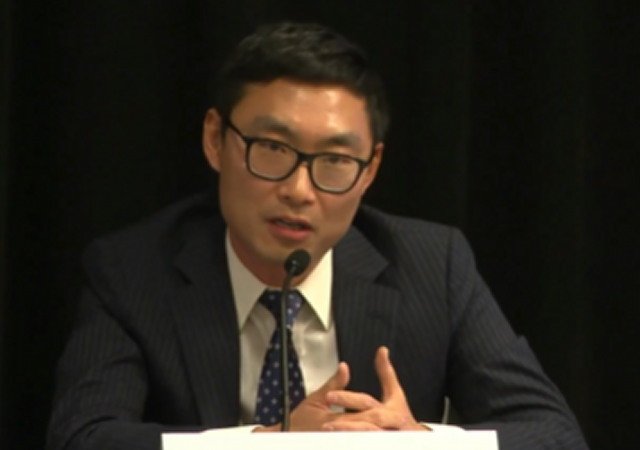


Professor Xiao Wang is a law professor at the University of Virginia and runs the school’s Supreme Court Clinic.
The post University of Virginia Law Professor Describes Outrageous Childish Behavior of His Activist Colleagues Over SCOTUS Case (VIDEO) appeared first on The Gateway Pundit.
Read More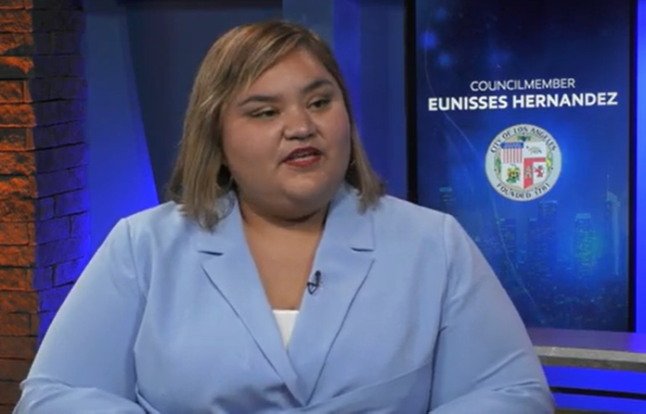


Eunisses Hernandez is a socialist city council member in Los Angeles.
The post Socialist LA City Council Member Who Makes $240K Per Year Overseeing Area With Drug Infested Public Park Skips Meeting With Angry Residents appeared first on The Gateway Pundit.
Read More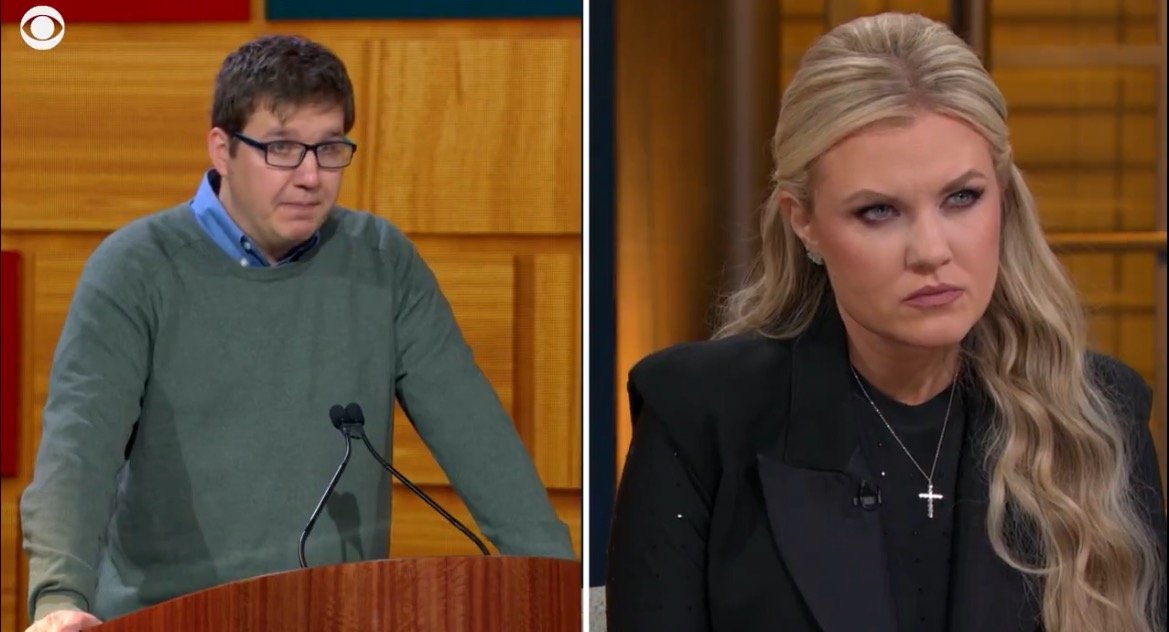


Charlie Kirk’s widow, Erika Kirk, sat down for a CBS News town hall after an interview with Fox News host Harris Faulkner.
The post Last Person Who Spoke to Charlie Kirk Ambushes Erika Kirk with ‘Gotcha’ Question About President Trump During CBS Town Hall (VIDEO) appeared first on The Gateway Pundit.
Read MoreGlory to God in the highest. And on earth peace to men of good will. We praise You. We bless You. We adore you. We glorify You. We give You thanks for Your great glory. O Lord God, heavenly King, God the Father almighty. O Lord Jesus Christ, the Only-begotten Son. O Lord God, Lamb of God, Son of the Father: you Who take away the sins of the world, have mercy on us. You Who take away the sins of the world, receive our prayer. You Who sit at the right hand of the Father, have mercy on us. For you …
Read MoreA reading from the Book of Isaiah
35:1-6a, 10
The desert and the parched land will exult;
the steppe will rejoice and bloom.
They will bloom with abundant flowers,
and rejoice with joyful song.
The glory of Lebanon will be given to them,
the splendor of Carmel and Sharon;
they will see the glory of the LORD,
the splendor of our God.
Strengthen the hands that are feeble,
make firm the knees that are weak,
say to those whose hearts are frightened:
Be strong, fear not!
Here is your God,
he comes with vindication;
with divine recompense
he comes to save you.
Then will the eyes of the blind be opened,
the ears of the deaf be cleared;
then will the lame leap like a stag,
then the tongue of the mute will sing.
Those whom the LORD has ransomed will return
and enter Zion singing,
crowned with everlasting joy;
they will meet with joy and gladness,
sorrow and mourning will flee.
A reading from the Letter of James
5:7-10
Be patient, brothers and sisters,
until the coming of the Lord.
See how the farmer waits for the precious fruit of the earth,
being patient with it
until it receives the early and the late rains.
You too must be patient.
Make your hearts firm,
because the coming of the Lord is at hand.
Do not complain, brothers and sisters, about one another,
that you may not be judged.
Behold, the Judge is standing before the gates.
Take as an example of hardship and patience, brothers and sisters,
the prophets who spoke in the name of the Lord.
From the Gospel according to Matthew
11:2-11
When John the Baptist heard in prison of the works of the Christ,
he sent his disciples to Jesus with this question,
"Are you the one who is to come,
or should we look for another?"
Jesus said to them in reply,
"Go and tell John what you hear and see:
the blind regain their sight,
the lame walk,
lepers are cleansed,
the deaf hear,
the dead are raised,
and the poor have the good news proclaimed to them.
And blessed is the one who takes no offense at me."
As they were going off,
Jesus began to speak to the crowds about John,
"What did you go out to the desert to see?
A reed swayed by the wind?
Then what did you go out to see?
Someone dressed in fine clothing?
Those who wear fine clothing are in royal palaces.
Then why did you go out? To see a prophet?
Yes, I tell you, and more than a prophet.
This is the one about whom it is written:
Behold, I am sending my messenger ahead of you;
he will prepare your way before you.
Amen, I say to you,
among those born of women
there has been none greater than John the Baptist;
yet the least in the kingdom of heaven is greater than he."
John, hearing of Jesus’ works, is seized with doubt as to whether He is really the Messiah or not. (…) The text emphasizes that John is in prison, and this, as well as being a physical place, makes us think of the inner situation he is experiencing: in prison there is darkness, there is no possibility of seeing clearly and seeing beyond it. In effect, the Baptist is no longer able to recognize Jesus as the awaited Messiah. He is assailed by doubt, and he sends the disciples to check: “Go and see if he is the Messiah or not”. (…)
But this means that even the greatest believer goes through the tunnel of doubt. And this is not a bad thing; on the contrary, sometimes it is essential for spiritual growth: it helps us understand that God is always greater than we imagine Him to be. His works are surprising compared to our calculations; His actions are different, always, they exceed our needs and expectations; and therefore, we must never stop seeking Him and converting to His true face. (…) This is what the Baptist does: in doubt, he still seeks Him, questions Him, “argues” with Him and finally rediscovers Him. John, defined by Jesus as the greatest among those born of women (cf. Mt 11:11), teaches us, in short, not to close God within our own mindsets. This is always the danger, the temptation: to make ourselves a God to our measure, a God to use. And God is something else. (Pope Francis, Angelus, 11 December 2022)
Read More![Curtis Martin steps down as CEO of FOCUS after nearly 3 decades leading ministry group - #Catholic -
FOCUS Founder Curtis Martin announces his retirement from the role of FOCUS CEO, Friday, Dec. 12, 2025 / Credit: FOCUS
CNA Staff, Dec 13, 2025 / 14:25 pm (CNA).
Curtis Martin, who founded the Catholic student ministry group FOCUS nearly 30 years ago, announced this week that he will step down from his management role there while continuing to serve in the long-running campus ministry organization.In a Dec. 12 letter announcing his retirement from the role of CEO, Martin said that after nearly three decades, the organization now numbers “more than 1,000 FOCUS missionaries … in over 250 locations,” reaching “nearly 60,000 students and parishioners” in 2025 alone. Since 2008, meanwhile, missionaries with the group have led “over 1,200 mission trips” that have sent more than 20,000 people to more than 50 countries. Martin said the “ever-increasing time demands” of his multiple roles at the company, coupled with several years of prayer with the organization’s board of directors, led him to step into an “expanded-public facing role” of “Founder,” one that will allow him to continue to work at the organization, including serving on its board.“My desire is to do what is best for the institution I love so dearly,” he said. Longtime board member Tim Thoman will serve as interim chief executive as the organization launches a search for a permanent CEO, Martin said, adding that he felt “extraordinarily blessed that [Thoman] agreed to lead FOCUS … during this time of transition.”Describing his work at FOCUS as “one of the deepest privileges of my life,” Martin urged the organization to “be who we are meant to be, so that through us, God can set the world on fire.” In a video announcing the transition, meanwhile, Thoman said FOCUS is marked by “tenacity and professionalism, but mostly the love of Jesus and the trust in God.” “The idea of working with people who wake up and come to work with a love for Jesus and a desire to do his will and live authentically their faith and also fulfill the Great Commission — I can’t imagine better people to work with, or a more worthy cause, than FOCUS,” he said. The Martins last year were awarded EWTN’s 2024 Mother Angelica Award for what EWTN Chairman and Chief Executive Officer Michael Warsaw called their “passion for the new evangelization” and their work at transforming “countless lives” through evangelization. Curtis Martin had announced FOCUS’s founding in 1997 on an episode of “Mother Angelica Live.” Michaelann Martin last year described receiving the Mother Angelica Award as “a humbling honor for both of us.” “We are grateful to Mother Angelica for her example of faith and courage, and to EWTN for continuing her work of evangelization,” she said. “But this is not about us. It is about the countless missionaries who have given their lives to this work and the students whose lives are being transformed by the Gospel,” she added.](http://unitedyam.com/wp-content/uploads/2025/12/curtis-martin-steps-down-as-ceo-of-focus-after-nearly-3-decades-leading-ministry-group-catholic-focus-founder-curtis-martin-announces-his-retirement-from-the-role-of-focus-ceo-friday-dec-1.webp)

CNA Staff, Dec 13, 2025 / 14:25 pm (CNA).
Curtis Martin, who founded the Catholic student ministry group FOCUS nearly 30 years ago, announced this week that he will step down from his management role there while continuing to serve in the long-running campus ministry organization.
In a Dec. 12 letter announcing his retirement from the role of CEO, Martin said that after nearly three decades, the organization now numbers “more than 1,000 FOCUS missionaries … in over 250 locations,” reaching “nearly 60,000 students and parishioners” in 2025 alone.
Since 2008, meanwhile, missionaries with the group have led “over 1,200 mission trips” that have sent more than 20,000 people to more than 50 countries.
Martin said the “ever-increasing time demands” of his multiple roles at the company, coupled with several years of prayer with the organization’s board of directors, led him to step into an “expanded-public facing role” of “Founder,” one that will allow him to continue to work at the organization, including serving on its board.
“My desire is to do what is best for the institution I love so dearly,” he said.
Longtime board member Tim Thoman will serve as interim chief executive as the organization launches a search for a permanent CEO, Martin said, adding that he felt “extraordinarily blessed that [Thoman] agreed to lead FOCUS … during this time of transition.”
Describing his work at FOCUS as “one of the deepest privileges of my life,” Martin urged the organization to “be who we are meant to be, so that through us, God can set the world on fire.”
In a video announcing the transition, meanwhile, Thoman said FOCUS is marked by “tenacity and professionalism, but mostly the love of Jesus and the trust in God.”
“The idea of working with people who wake up and come to work with a love for Jesus and a desire to do his will and live authentically their faith and also fulfill the Great Commission — I can’t imagine better people to work with, or a more worthy cause, than FOCUS,” he said.
The Martins last year were awarded EWTN’s 2024 Mother Angelica Award for what EWTN Chairman and Chief Executive Officer Michael Warsaw called their “passion for the new evangelization” and their work at transforming “countless lives” through evangelization.
Curtis Martin had announced FOCUS’s founding in 1997 on an episode of “Mother Angelica Live.” Michaelann Martin last year described receiving the Mother Angelica Award as “a humbling honor for both of us.”
“We are grateful to Mother Angelica for her example of faith and courage, and to EWTN for continuing her work of evangelization,” she said.
“But this is not about us. It is about the countless missionaries who have given their lives to this work and the students whose lives are being transformed by the Gospel,” she added.
Read MoreUsing the James Webb Space Telescope (JWST), a team of astronomers has found the earliest known supernova, one which exploded when the universe was just 730 million years old. This observation shattered JWST’s previous record, a supernova that occurred when the universe was 1.8 billion years old. The team was following up on a gamma rayContinue reading “JWST captures the earliest supernova yet”
The post JWST captures the earliest supernova yet appeared first on Astronomy Magazine.
Read More
From Idaho’s dark-sky parks to Maine’s remote wilderness, these underrated spots offer dazzling aurora views.
Read More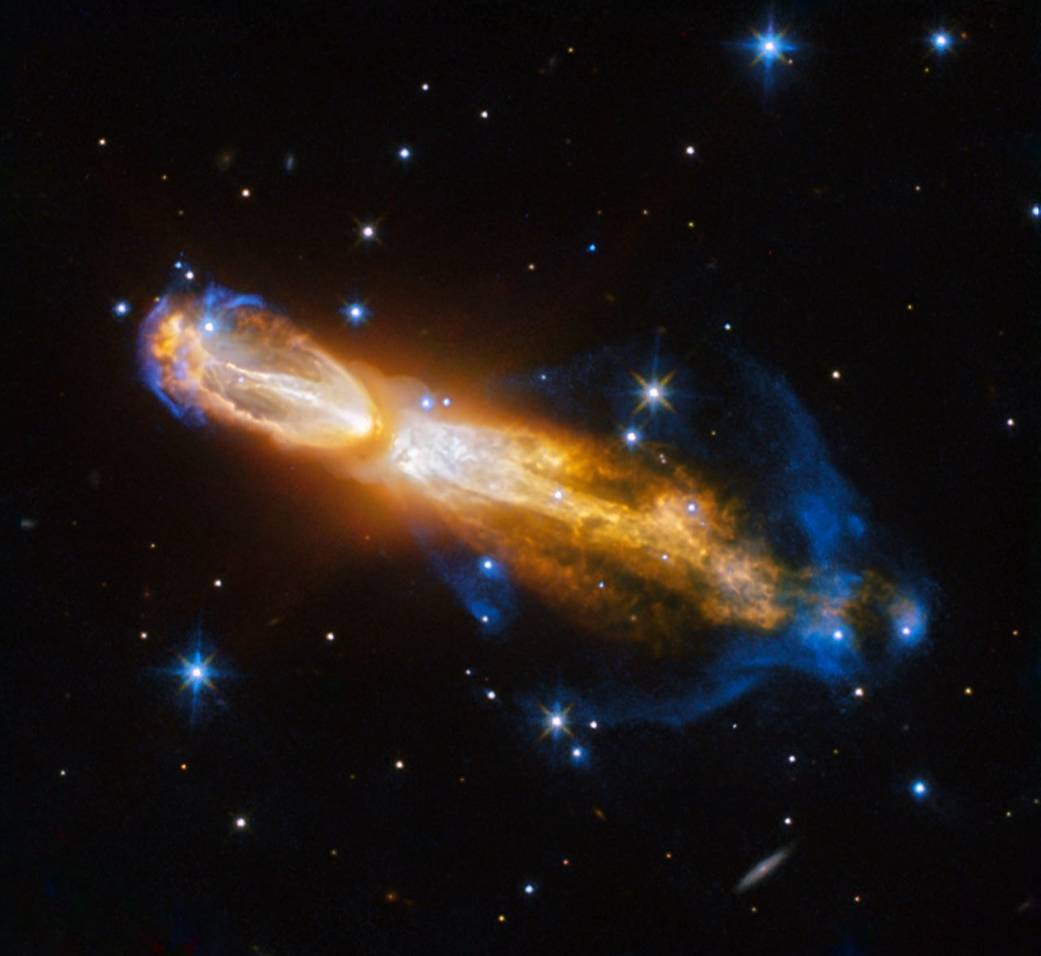

The Calabash Nebula, pictured here — which has the technical name OH 231.8+04.2 — is a spectacular example of the death of a low-mass star like the Sun. This image taken by the NASA/ESA Hubble Space Telescope shows the star going through a rapid transformation from a red giant to a planetary nebula, during which it blows its outer layers of gas and dust out into the surrounding space. The recently ejected material is spat out in opposite directions with immense speed — the gas shown in yellow is moving close to a million kilometres an hour. Astronomers rarely capture a star in this phase of its evolution because it occurs within the blink of an eye — in astronomical terms. Over the next thousand years the nebula is expected to evolve into a fully fledged planetary nebula. The nebula is also known as the Rotten Egg Nebula because it contains a lot of sulphur, an element that, when combined with other elements, smells like a rotten egg — but luckily, it resides over 5000 light-years away in the constellation of Puppis (The Poop deck).
Read More![Swedish choir honors St. Lucy with songs in St. Peter’s Basilica - #Catholic -
Students from Nordiska Musikgymnasiet — The Nordic Music High School — in Stockholm perform traditional Swedish “Lucia songs” during an afternoon Mass in St. Peter’s Basilica on Dec. 11, 2025. / Credit: Bénédicte Cedergren/EWTN News
Rome Newsroom, Dec 13, 2025 / 09:00 am (CNA).
A Swedish youth choir marked the feast of St. Lucy by singing at a Mass at the Vatican on Thursday, Dec. 11.Students from Nordiska Musikgymnasiet — The Nordic Music High School — in Stockholm performed traditional Swedish “Lucia songs” during an afternoon Mass in St. Peter’s Basilica ahead of the Italian saint’s Dec. 13 feast day.Students from Nordiska Musikgymnasiet — The Nordic Music High School — in Stockholm perform traditional Swedish “Lucia songs” during an afternoon Mass in St. Peter’s Basilica on Dec. 11, 2025. Credit: Bénédicte Cedergren/EWTN News“It was just really amazing” singing in St. Peter’s Basilica, choir member Alfio Tota told EWTN News after the Dec. 11 Mass. “It’s so enormous … And the acoustics are very interesting.”The student recalled that though Sweden is a very secular country, the tradition of St. Lucia, as they call her, is quite strong.Students from Nordiska Musikgymnasiet — The Nordic Music High School — in Stockholm perform traditional Swedish “Lucia songs” during an afternoon Mass in St. Peter’s Basilica on Dec. 11, 2025. Credit: Bénédicte Cedergren/EWTN News“I think everyone feels quite a lot of joy and nostalgia in singing” the St. Lucy hymns, he said.Choir member Fabienne Glader told EWTN News that she always spends the feast of St. Lucy with her family.Students from Nordiska Musikgymnasiet — The Nordic Music High School — in Stockholm perform traditional Swedish “Lucia songs” during an afternoon Mass in St. Peter’s Basilica on Dec. 11, 2025. Credit: Bénédicte Cedergren/EWTN NewsSt. Lucy “shows courage and patience and just to never [give up] on yourself,” Glader said. “Even if you’re not really religious in any way, you can look up to her as just a wonderful person.”The choir’s conductor, Casimir Käfling, said as a Christian, the tradition of St. Lucy was always part of Christmas for his family.Students from Nordiska Musikgymnasiet — The Nordic Music High School — in Stockholm perform traditional Swedish “Lucia songs” during an afternoon Mass in St. Peter’s Basilica on Dec. 11, 2025. Credit: Bénédicte Cedergren/EWTN NewsHe called it “an incredible honor to be able to sing and conduct” her songs in St. Peter’s Basilica.Käfling also recalled the darkness Sweden experiences during the winter, especially in the month of December, and said St. Lucy brings light into that darkness.“The story of St. Lucy really plays with these contrasts of light and dark, and most importantly, hope and despair,” Tota said.](http://unitedyam.com/wp-content/uploads/2025/12/swedish-choir-honors-st-lucy-with-songs-in-st-peters-basilica-catholic-students-from-nordiska-musikgymnasiet-the-nordic-music-high-school-in-stockholm-perform-t-scaled.webp)

Rome Newsroom, Dec 13, 2025 / 09:00 am (CNA).
A Swedish youth choir marked the feast of St. Lucy by singing at a Mass at the Vatican on Thursday, Dec. 11.
Students from Nordiska Musikgymnasiet — The Nordic Music High School — in Stockholm performed traditional Swedish “Lucia songs” during an afternoon Mass in St. Peter’s Basilica ahead of the Italian saint’s Dec. 13 feast day.

“It was just really amazing” singing in St. Peter’s Basilica, choir member Alfio Tota told EWTN News after the Dec. 11 Mass. “It’s so enormous … And the acoustics are very interesting.”
The student recalled that though Sweden is a very secular country, the tradition of St. Lucia, as they call her, is quite strong.

“I think everyone feels quite a lot of joy and nostalgia in singing” the St. Lucy hymns, he said.
Choir member Fabienne Glader told EWTN News that she always spends the feast of St. Lucy with her family.

St. Lucy “shows courage and patience and just to never [give up] on yourself,” Glader said. “Even if you’re not really religious in any way, you can look up to her as just a wonderful person.”
The choir’s conductor, Casimir Käfling, said as a Christian, the tradition of St. Lucy was always part of Christmas for his family.

He called it “an incredible honor to be able to sing and conduct” her songs in St. Peter’s Basilica.
Käfling also recalled the darkness Sweden experiences during the winter, especially in the month of December, and said St. Lucy brings light into that darkness.
“The story of St. Lucy really plays with these contrasts of light and dark, and most importantly, hope and despair,” Tota said.
Read More![Caritas Lithuania launches program to help those struggling with pornography addiction - #Catholic -
Simon Schwarz, head of the Caritas Vilnius Convicts Consultation Center, talks to university students in Vilnius, Lithuania. / Credit: Caritas Lithuania
Vilnius, Lithuania, Dec 13, 2025 / 08:00 am (CNA).
Caritas Lithuania has launched a new support initiative for individuals struggling with pornography addiction, responding to what staff describe as a marked surge in people seeking help as explicit content becomes increasingly unavoidable online. The program, offered in Lithuanian, English, and German — both in person and remotely — provides counseling not only for those battling compulsive sexual behaviors but also for spouses and family members affected by them. Caritas workers report a noticeable rise in referrals, with many parish priests now directing individuals in their care to the program, touching upon the growing need for coordinated pastoral and professional support.Growing demand for helpSimon Schwarz, head of the Caritas Vilnius Convicts Consultation Center and an addiction counselor, told CNA that the new program grew out of a steady rise in cases. “For the last seven years, people suffering from compulsive sexual behavior disorder [CSBD] have been coming to Caritas for help,” he explained.The continued stream of cases in 2023 and 2024, he said, made it clear that “we needed to professionalize our work in this area.”With the support of Caritas Vilnius leadership, Schwarz completed specialized training in treating compulsive sexual behaviors and sex addiction, certification the organization helped to fund. He said the need has grown rapidly in Lithuania, a “highly tech-oriented country” where even young children often have unsupervised internet access and where sexualized content is easily encountered across social media, advertisements, and video sites.“You don’t even have to seek out pornography to be exposed to it,” he noted, explaining that early exposure significantly increases the risk of developing an unhealthy relationship with sexual content. Yet discussing these struggles remains difficult.“The paradox is that we live in a highly sexualized society, but we shame anyone who cannot control their sexual behavior,” Schwarz added.Program details and costsAs the initiative is still growing, Caritas Vilnius is continuing to develop its funding base, and for now, clients contribute to the cost of consultations. The support process begins with a free introductory consultation, during which individuals complete a brief screening for compulsive sexual behavior disorders. Those unable to afford further sessions are directed to free or low-cost alternatives, including Sexaholics Anonymous groups or online self-help resources. A follow-up session then evaluates the person’s specific situation and sets a tailored plan, first to halt compulsive behaviors and later to address deeper issues such as stress, isolation, or anxiety.Shifting demographics of clientsBefore the initiative was formally launched, for several years those suffering with compulsive sexual behavior disorders had approached Caritas Vilnius for help and they were directed to Schwarz. Most of those early clients were well-educated married men between the ages of 35 and 55, employed in respected professions. But once the initiative became more widespread and local parishes began referring individuals, the profile shifted dramatically.Today, nearly half of the clients are between 18 and 20 years old, with some already facing severe psychological consequences after years of pornography use beginning in early puberty.Addressing stigma in Christian communitiesA key aim of the initiative is to reduce the stigma surrounding these struggles within Christian communities.“Research shows that Christians often feel more ashamed of their sexual acting out than nonbelievers, because their struggle carries a significant spiritual weight,” Schwarz explained.He also challenged the common misconception that pornography use doesn’t affect one’s partner, explaining that many dismiss it as not “real” infidelity since it’s just on a screen. However, the discovery of a spouse’s addiction proves equally devastating.Kristina Rakutienė, a well-known Lithuanian social activist involved in raising awareness about the harms of pornography, echoed those concerns. She said many people hesitate to publicly engage with educational posts on social media out of fear that others will assume they personally struggle with addiction. She also pointed to a lack of easily accessible information, leaving many unsure where to turn or unaware that support groups exist.Women also affected Rakutienė discussed that the issue affects women as well. “When talking face to face, many women tell me they face this struggle too, or that they feel betrayed when their spouses enjoy porn,” she said. She tries to reassure both addicts and spouses who feel wounded that “there is hope,” adding that healing is possible by relying on God’s mercy, which offers not only compassion but also true freedom.CNA also spoke with Father Kęstutis Dvareckas, a priest at a Caritas rehabilitation center with more than 15 years of experience treating both substance-related and behavioral addictions. He confirmed that, even before the new program was formally established, the center had already seen a growing number of people seeking help for pornography addiction.In explaining the psychological and spiritual consequences of the problem, he likened it to substance addiction in that victims often require increasingly extreme content to achieve the same stimulation, which can ultimately undermine their ability to form and sustain healthy relationships. This was due to people becoming desensitized and finding real relationships dull and unfulfilling.Addressing such struggles pastorally, he noted, requires sensitivity rather than moral assessments or outright condemnation. “Only understanding and acceptance allow a person to recognize the extent of their illness and to seek help from God and from others,” he said.“Effective support,” he added, “depends on close cooperation between priests and clinical professionals, including psychiatrists, psychologists, and addiction counselors.” He also highlighted the Church’s unique role in moving people from the isolation, denial, and self-blame of their addictions to the experience and closeness of God’s love as they overcome their vices.Remarking on the critical distinction regarding responsibility, he said: “A person is not guilty of becoming ill, but they are guilty and responsible if they do not seek treatment for their illness.”](http://unitedyam.com/wp-content/uploads/2025/12/caritas-lithuania-launches-program-to-help-those-struggling-with-pornography-addiction-catholic-simon-schwarz-head-of-the-caritas-vilnius-convicts-consultation-center-talks-to-university-st.webp)

Vilnius, Lithuania, Dec 13, 2025 / 08:00 am (CNA).
Caritas Lithuania has launched a new support initiative for individuals struggling with pornography addiction, responding to what staff describe as a marked surge in people seeking help as explicit content becomes increasingly unavoidable online.
The program, offered in Lithuanian, English, and German — both in person and remotely — provides counseling not only for those battling compulsive sexual behaviors but also for spouses and family members affected by them.
Caritas workers report a noticeable rise in referrals, with many parish priests now directing individuals in their care to the program, touching upon the growing need for coordinated pastoral and professional support.
Simon Schwarz, head of the Caritas Vilnius Convicts Consultation Center and an addiction counselor, told CNA that the new program grew out of a steady rise in cases. “For the last seven years, people suffering from compulsive sexual behavior disorder [CSBD] have been coming to Caritas for help,” he explained.
The continued stream of cases in 2023 and 2024, he said, made it clear that “we needed to professionalize our work in this area.”
With the support of Caritas Vilnius leadership, Schwarz completed specialized training in treating compulsive sexual behaviors and sex addiction, certification the organization helped to fund. He said the need has grown rapidly in Lithuania, a “highly tech-oriented country” where even young children often have unsupervised internet access and where sexualized content is easily encountered across social media, advertisements, and video sites.
“You don’t even have to seek out pornography to be exposed to it,” he noted, explaining that early exposure significantly increases the risk of developing an unhealthy relationship with sexual content. Yet discussing these struggles remains difficult.
“The paradox is that we live in a highly sexualized society, but we shame anyone who cannot control their sexual behavior,” Schwarz added.
As the initiative is still growing, Caritas Vilnius is continuing to develop its funding base, and for now, clients contribute to the cost of consultations. The support process begins with a free introductory consultation, during which individuals complete a brief screening for compulsive sexual behavior disorders.
Those unable to afford further sessions are directed to free or low-cost alternatives, including Sexaholics Anonymous groups or online self-help resources. A follow-up session then evaluates the person’s specific situation and sets a tailored plan, first to halt compulsive behaviors and later to address deeper issues such as stress, isolation, or anxiety.
Before the initiative was formally launched, for several years those suffering with compulsive sexual behavior disorders had approached Caritas Vilnius for help and they were directed to Schwarz. Most of those early clients were well-educated married men between the ages of 35 and 55, employed in respected professions. But once the initiative became more widespread and local parishes began referring individuals, the profile shifted dramatically.
Today, nearly half of the clients are between 18 and 20 years old, with some already facing severe psychological consequences after years of pornography use beginning in early puberty.
A key aim of the initiative is to reduce the stigma surrounding these struggles within Christian communities.
“Research shows that Christians often feel more ashamed of their sexual acting out than nonbelievers, because their struggle carries a significant spiritual weight,” Schwarz explained.
He also challenged the common misconception that pornography use doesn’t affect one’s partner, explaining that many dismiss it as not “real” infidelity since it’s just on a screen. However, the discovery of a spouse’s addiction proves equally devastating.
Kristina Rakutienė, a well-known Lithuanian social activist involved in raising awareness about the harms of pornography, echoed those concerns. She said many people hesitate to publicly engage with educational posts on social media out of fear that others will assume they personally struggle with addiction. She also pointed to a lack of easily accessible information, leaving many unsure where to turn or unaware that support groups exist.
Rakutienė discussed that the issue affects women as well. “When talking face to face, many women tell me they face this struggle too, or that they feel betrayed when their spouses enjoy porn,” she said. She tries to reassure both addicts and spouses who feel wounded that “there is hope,” adding that healing is possible by relying on God’s mercy, which offers not only compassion but also true freedom.
CNA also spoke with Father Kęstutis Dvareckas, a priest at a Caritas rehabilitation center with more than 15 years of experience treating both substance-related and behavioral addictions. He confirmed that, even before the new program was formally established, the center had already seen a growing number of people seeking help for pornography addiction.
In explaining the psychological and spiritual consequences of the problem, he likened it to substance addiction in that victims often require increasingly extreme content to achieve the same stimulation, which can ultimately undermine their ability to form and sustain healthy relationships. This was due to people becoming desensitized and finding real relationships dull and unfulfilling.
Addressing such struggles pastorally, he noted, requires sensitivity rather than moral assessments or outright condemnation. “Only understanding and acceptance allow a person to recognize the extent of their illness and to seek help from God and from others,” he said.
“Effective support,” he added, “depends on close cooperation between priests and clinical professionals, including psychiatrists, psychologists, and addiction counselors.” He also highlighted the Church’s unique role in moving people from the isolation, denial, and self-blame of their addictions to the experience and closeness of God’s love as they overcome their vices.
Remarking on the critical distinction regarding responsibility, he said: “A person is not guilty of becoming ill, but they are guilty and responsible if they do not seek treatment for their illness.”
Read More

CNA Staff, Dec 13, 2025 / 07:00 am (CNA).
Secular dating shows like “The Bachelor,” “Farmer Wants a Wife,” and “Love Is Blind” are among a plethora of programs that aim to bring singles together. But what would it look like to add faith to matchmaking in a dating show? CatholicMatch, one of the first Catholic dating sites, seeks to do just that with the launch of “The Catholic Dating Show.”
Earlier this year, CatholicMatch released a new platform called “Relate.” This platform is meant to bring users together for weekly live, virtual events such as trivia nights, discussions with prominent Catholic speakers, and “The Catholic Dating Show.”
The show has quickly become a fan favorite, bringing in over 600 live viewers through the dating site and even more when it is uploaded to CatholicMatch’s YouTube channel the next day for nonmembers to watch.
Taking place two Saturdays a month, “The Catholic Dating Show” is an hourlong event that features one single woman and three single men. During the first half of the show, the woman asks her suitors questions to get to know them better. The three men also have their cameras off for this part so the woman cannot see them.
Once she is done asking questions, the live audience lets her know, via a live poll, whom they think she should continue with into the second half of the show. She can either take their advice or not. Once she picks one of the three suitors, the two go on to play compatibility games to get to know each other further. The show finishes with another live poll from the audience asking if the two should meet in person for a date.
“It’s just been so much fun,” Tony Tibbetts, live events manager at CatholicMatch and the host of the dating show, told CNA in an interview. “We’re having a blast and people love it.”
Tibbetts pointed out that through the Relate platform, CatholicMatch is not only trying to address a singleness epidemic but “also a loneliness epidemic.”
As someone who works with Catholic singles on a daily basis, Tibbetts shared that he is witnessing that “there’s a great sense of distrust in the world and the feeling of you’re going to get burned” and “that lack of vulnerability has become very rampant in the Catholic community when it comes to Catholic dating.”

Due to this, CatholicMatch is working to be more than just a dating app but also to “build something unique in the dating world, especially with this Relate platform — to not only be the name you think of when you think of Catholic online dating, but it will also be something that people desire to be part of.”
“So we’re helping people to be able to join in the Catholic community — because we all need community — of singles and who knows, maybe you just might find ‘the one’ while you’re there,” he explained.
He added: “Our stated mission is to help facilitate as many holy, Catholic marriages as possible, and so we want to do that for you as quickly as possible, as quickly as we can, but while you’re on it as well, we want you to get the most out of your dating experience. Dating should be fun. Dating shouldn’t be stressful … We want to help facilitate that joy in people and that excitement for community, for possibly finding other people like you, for possibly finding ‘the one.’”
Through the live events, Tibbetts said he believes CatholicMatch is enabling users to “go beyond the profile of somebody to be able to get to know them.”
One of their newest additions to the Relate platform is the dating hotline, which allows users to call in with questions about dating or ask for advice and have their questions answered live by the male and female hosts.
Tibbetts said the primary goal is “trying to facilitate joy among Catholic singles.”
“With that, we hope and pray that the Lord will move something within them where we can create marriages, we can create holy, Catholic relationships with it … We’re trying to create joyful lives for Catholics and hopefully create some Catholic marriages along the way.”
Read More
CNA Staff, Dec 13, 2025 / 06:00 am (CNA).
When an iconographer began his work on a unique icon, he looked to the bones of the saint’s husband for help.
FOCCUS Marriage Ministries, a Catholic marriage ministry, invited the priest-iconographer Father Richard Reiser to make an icon of St. Bridget of Sweden, a mystic and the mother of eight. The ministry is celebrating its 40th anniversary this year and chose St. Bridget to be the patron saint of its work.
But there was one challenge. According to Reiser, historically there is no established iconographic prototype of an icon of St. Bridget of Sweden.
So using his imagination and every historical source available — including the bones of St. Bridget’s husband — the priest developed an entirely new icon of a saint who has gone without an icon for hundreds of years.
“For me, iconography is first and foremost a form of prayer,” Reiser said. “The entire creative process is an act of listening to God and allowing the sacred story of a saint or mystery to take shape through layers of contemplation, color, and symbolism.”
The end result was an icon ripe with symbolic meaning — at its heart, marriage and family.

FOCCUS Marriage Ministries chose St. Bridget of Sweden to be its patron because of her commitment to marriage and the Church.
St. Bridget’s life “beautifully reflects the heart of marriage ministry,” Sheila Simpson, who heads the archdiocese-owned nonprofit, told CNA.
Now displayed in the hallway of the FOCCUS office in the Archdiocese of Omaha, Nebraska, the icon contains a quote from Pope Benedict XVI about the family as the domestic church as well as several symbols of the married couple’s life together.
“The icon quietly teaches that marriage is both a covenant of grace and a living witness to the Gospel,” Reiser told CNA.
With St. Bridget as its guiding light, FOCCUS is launching resources for couples whose marriages have unusual challenges, such as those who need their marriage convalidated by the Church, as well as those marrying later in life.
FOCCUS is most well known for its inventories — questionnaires designed to help engaged couples prepare for marriage by initiating conversations about issues like finance and values. The additional, new questionnaires will have questions tailored for couples in unusual situations, including military couples, first responders, and deacons.
Simpson said many couples say FOCCUS “became a turning point — not because it told them what to do, but because it helped them truly hear each other.”
Reiser said that one of the most “fascinating” parts of the icon-making process was consulting the bones of Ulf Gudmarsson, the husband of St. Bridget.
“His bones indicated that he was significantly larger in stature than she was,” he said.
“To honor historical accuracy while still emphasizing Bridget’s spiritual prominence, I placed her on a small set of steps so she would remain the central figure of the composition,” he explained.
Icons are “created for contemplation and spiritual truth more than realism,” Reiser said.
“They are windows into the divine — visual theology meant to open the heart and mind to God’s presence,” he continued.
“They participate in the mystery of the Incarnation,” Reiser said. “The eternal Word of God takes visible form.”
The icon depicts an emblem of the Third Order Franciscans, which the couple joined after they got married.
In addition, Gudmarsson holds a staff with a shell, referencing the pilgrimage the couple took to northwestern Spain.
It would be the last pilgrimage the couple ever made together. On the return journey from the pilgrimage, Gudmarsson grew ill and died soon after they returned to Sweden.
As a widow, St. Bridget dedicated her life to Christ, founding the religious order now known as the Bridgettines, which still exists to this day.

Iconographers don’t paint — they write.
“Every line, color, and gesture carries symbolic meaning,” Reiser said. “That is why we often say icons are ‘written’ rather than painted.”
For instance, the 15 florets below St. Bridget of Sweden reference her 15 meditations on Christ’s passion. The cloak she wears has a brooch styled to symbolize the five wounds of Christ. Within the brooch is a relic of St. Bridget.
“Writing the icon of St. Bridget of Sweden was a unique and grace-filled experience because, historically, there is no established iconographic prototype of her — especially not one depicting her with her family,” Reiser said. “Without a traditional image to follow, I drew from existing paintings of St. Bridget and shaped them within the contemplative, dignified structure of classical iconography.”
With “no established icon tradition for Bridget’s family,” Reiser said he “consulted other family-centered icons, especially images of Christ with children, to discern how to portray children in an authentically iconographic style.”
The paintings of the children visually form a circle, which Reiser said represents the unity of the family. One of the children, Ingeborg, holds bluebells, the national flower of St. Bridget’s homeland, Sweden.
“Each of these details helps the icon speak not just as artwork but as a theological meditation on the holiness of family life,” Reiser said.
Read More
WASHINGTON, D.C. — President Donald Trump has just one message for American families struggling economically this Christmas: "Your kids are bad, so maybe they don’t deserve presents."
Read More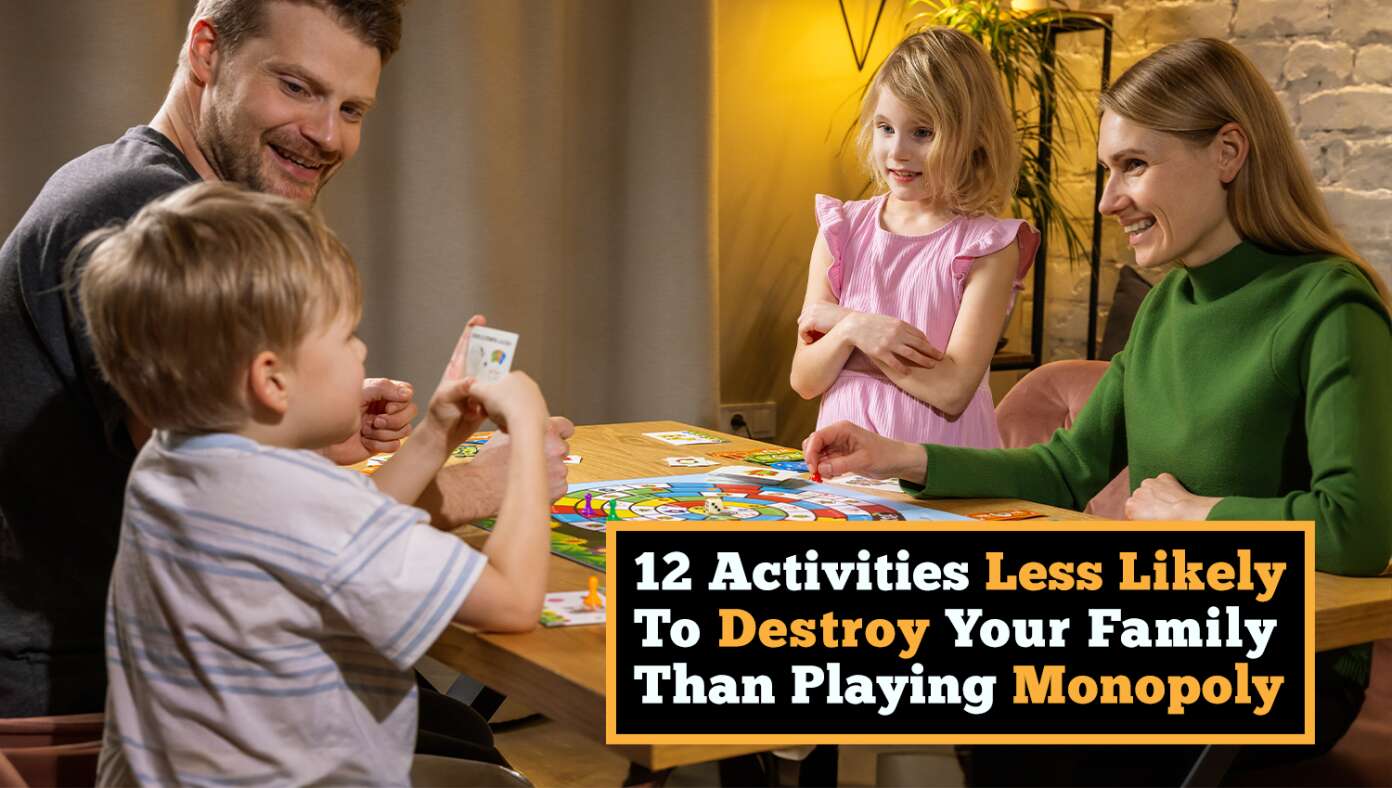
Countless families have been destroyed by games of Monopoly gone awry. Don’t let that happen to you.
Read More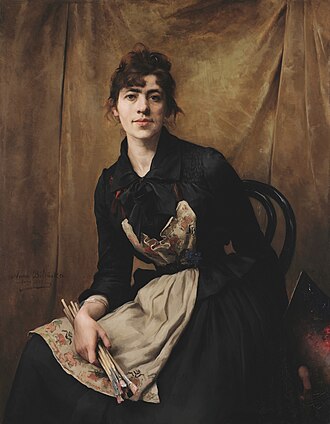
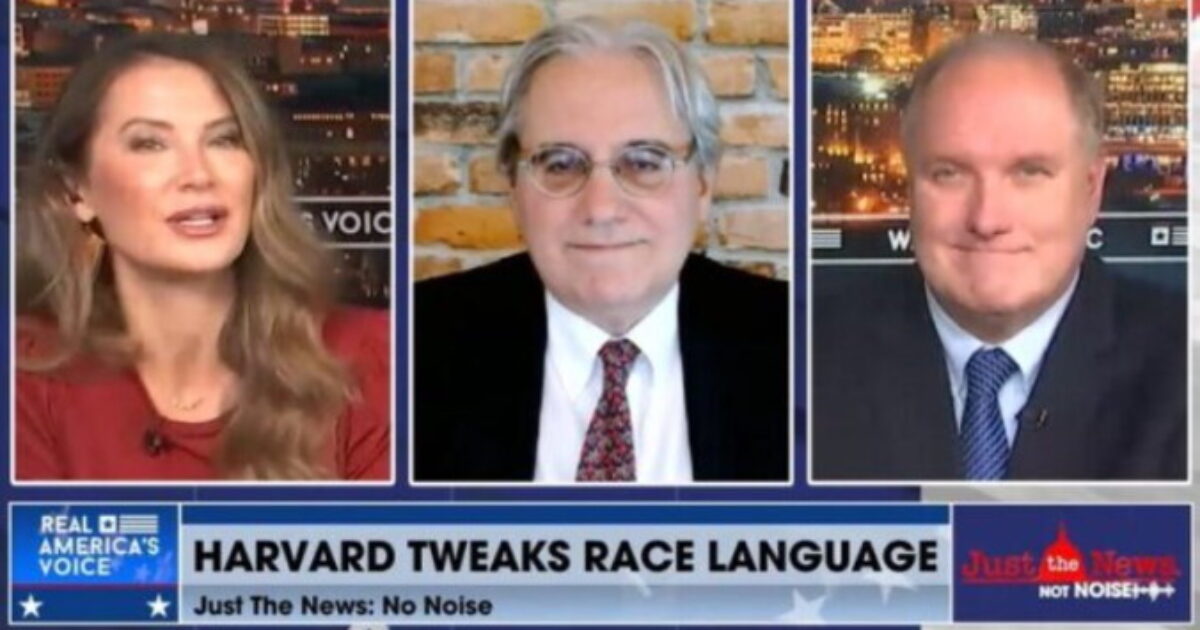


Conservative Law Professor William Jacobson of Cornell University is the creator and publisher of the Legal Insurrection blog.
The post Conservative Cornell Law Prof Busts Harvard for Scholarship Program That Discriminates Against White Students (VIDEO) appeared first on The Gateway Pundit.
Read More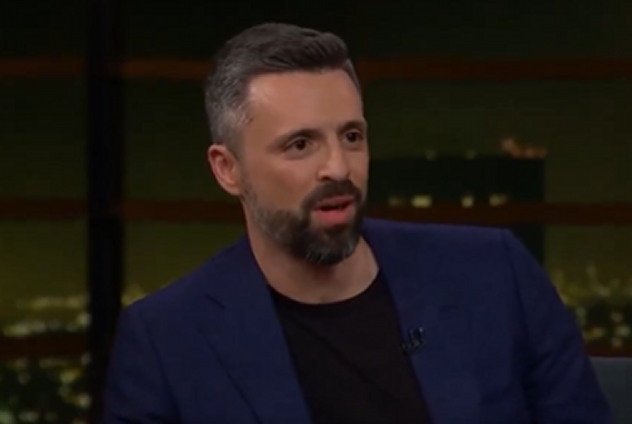


California Governor Gavin Newsom recently appeared on the podcast of New York Times columnist Ezra Klein.
The post NY Times Columnist Claims Trump Lies About Democrats Wanting Healthcare for Illegals – Then Admits it’s Happening appeared first on The Gateway Pundit.
Read More


The heavily redacted warrant to seize the Venezuelan oil tanker was unsealed on Friday evening.
The post Heavily Redacted Warrant to Seize Venezuelan Oil Tanker Unsealed appeared first on The Gateway Pundit.
Read More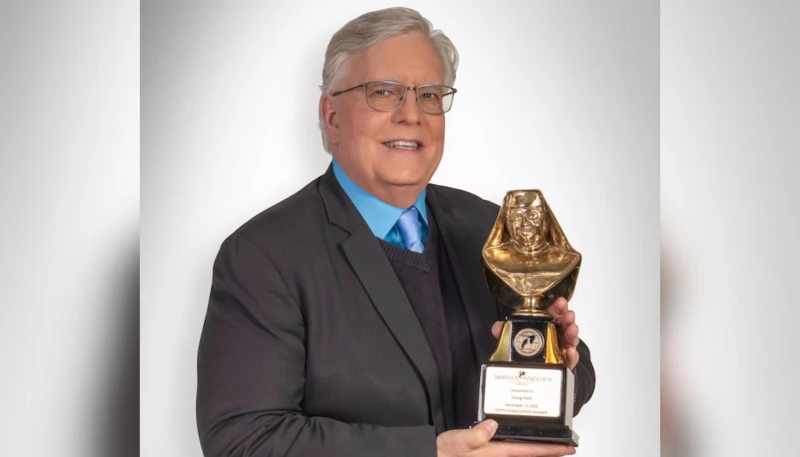

Washington, D.C. Newsroom, Dec 12, 2025 / 20:02 pm (CNA).
The EWTN Global Catholic Network presented the 2025 Mother Angelica Award to its longtime former president, Doug Keck, in recognition of his decades of service, faithful leadership, and tireless commitment to the mission of evangelization.
Following a 29-year career at EWTN, Keck retired from his duties as EWTN president and chief operating officer in June. He subsequently assumed the honorary title of president emeritus and continues to host his signature series “EWTN Bookmark” as well as serve as co-host of “Father Spitzer’s Universe.”
The Mother Angelica Award, which was presented to Keck during a special ceremony broadcast globally, is the highest honor bestowed by the network to recognize individuals whose lives reflect the spirit of faith, courage, and evangelistic zeal embodied by EWTN’s foundress, Mother Angelica.
“On behalf of the entire EWTN family around the globe, I want to thank Doug for keeping the mission of EWTN our No. 1 priority over the years and never compromising on sharing the truth of the Gospel for views or clicks,” said EWTN Chairman of the Board and CEO Michael Warsaw.
“He is more than deserving of this award,” Warsaw added.
Keck joined EWTN in 1996 after a highly successful career in cable television in New York City, where he contributed to the growth of networks such as Sports Channel, Bravo, AMC, and CNBC.
Over the years at EWTN, Keck helped develop and launch numerous flagship programs, including “Life on the Rock,” “The Journey Home,” “EWTN Bookmark,” and “The World Over with Raymond Arroyo,” playing a central role in the network’s expansion across television, radio, and digital platforms.
In 2009, Keck became the network’s executive vice president and chief operating officer, and in 2013 he was named president and chief operating officer. Under his leadership, EWTN grew to become the largest global Catholic media organization, reaching millions of households worldwide and offering content across multiple languages and media channels.
“Mother Angelica always said our job is to soak the earth with the truth of the Gospel and the Catholic Church. That’s been EWTN’s No. 1 priority, and I’ve been proud to be a part of it alongside so many other dedicated people,” Keck said.
Reflecting on how God called him out of his career in secular media, Keck’s message to any Catholic is to consider how God might be calling him or her to put their talents to the service of the Gospel.
“That’s what we’re called to do, really,” he said. “You don’t bury what you’ve been given. You give your talents over to him.”
The full award ceremony, including tributes from those whose lives have been touched by Keck, will be available for viewing on EWTN On Demand at www.ondemand.ewtn.com.
Keck now joins previous distinguished recipients of the Mother Angelica Award including Archbishop Emeritus of Philadelphia Charles J. Chaput, OFM Cap; former New Orleans Saints wide receiver and football coach Danny Abramowicz; and co-founders of the Fellowship of Catholic University Students (FOCUS) Curtis and Michaelann Martin.
Inaugurated in 2021 on the 40th anniversary of EWTN’s founding, the Mother Angelica Award honors recipients for their extraordinary contribution to the Church and the new evangelization — serving as witnesses to God’s providence through their ministry and leadership.
The largest Catholic media organization in the world, EWTN’s 11 global television channels broadcast in multiple languages 24 hours a day. The network also operates radio services via SiriusXM, iHeartRadio, and hundreds of AM/FM affiliates as well as one of the most visited Catholic websites in the U.S., a publishing division, and a robust global news operation.
The network’s diverse range of programming includes catechetical series, devotions, news, talk shows, documentaries, and live coverage of major Church events — reaching hundreds of millions of viewers worldwide.
Read MoreLord and giver of all life,
help us to value each person, created in love by you.
In your mercy, guide and assist our efforts
to promote the dignity and value
of all human life, born and unborn.
We ask this through Christ our Lord.
Amen.
A reading from the Book of Sirach
48:1-4, 9-11
In those days,
like a fire there appeared the prophet Elijah
whose words were as a flaming furnace.
Their staff of bread he shattered,
in his zeal he reduced them to straits;
By the Lord’s word he shut up the heavens
and three times brought down fire.
How awesome are you, Elijah, in your wondrous deeds!
Whose glory is equal to yours?
You were taken aloft in a whirlwind of fire,
in a chariot with fiery horses.
You were destined, it is written, in time to come
to put an end to wrath before the day of the LORD,
To turn back the hearts of fathers toward their sons,
and to re-establish the tribes of Jacob.
Blessed is he who shall have seen you
and who falls asleep in your friendship.
From the Gospel according to Matthew
17:9a, 10-13
As they were coming down from the mountain,
the disciples asked Jesus,
"Why do the scribes say that Elijah must come first?"
He said in reply, "Elijah will indeed come and restore all things;
but I tell you that Elijah has already come,
and they did not recognize him but did to him whatever they pleased.
So also will the Son of Man suffer at their hands."
Then the disciples understood
that he was speaking to them of John the Baptist.
Having accomplished his mission, John knows how to step aside, he withdraws from the scene to make way for Jesus. (…) He is not interested in having a following for himself, in gaining prestige and success, but rather bears witness and then takes a step back, so that many would have the joy of meeting Jesus. We can say: he opens the door, then he leaves. With this spirit of service, with his capacity to give way to Jesus, John the Baptist teaches us an important thing: freedom from attachments. Yes, because it is easy to become attached to roles and positions, to the need to be esteemed, recognized and rewarded. And this, although natural, is not a good thing, because service involves gratuitousness. (…) It is good for us, too, to cultivate, like John, the virtue of setting ourselves aside at the right moment (…) To step aside, to learn to take one’s leave: I have completed this mission, I have had this meeting, I will step aside and leave room for the Lord. (Pope Francis, Angelus, 15 January 2023)
Read More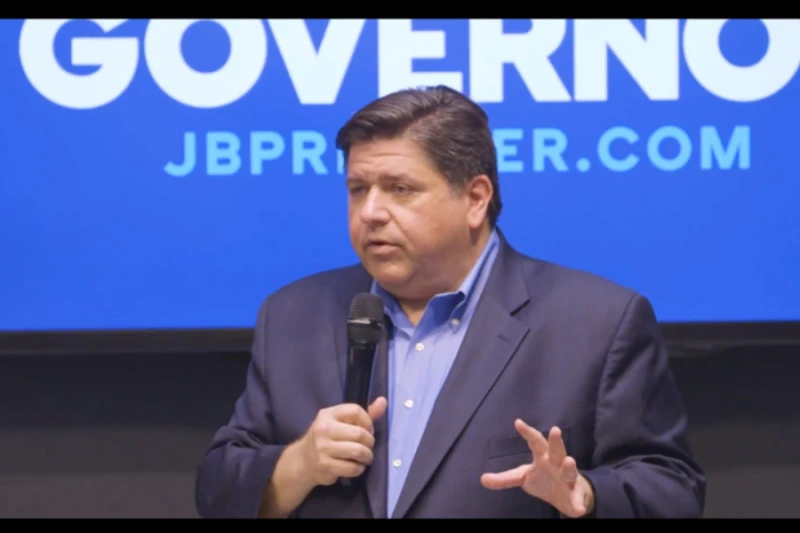

CNA Staff, Dec 12, 2025 / 16:52 pm (CNA).
Illinois Gov. JB Pritzker signed into law an assisted suicide bill that Catholic leaders have ardently opposed.
Pritzker, who met with Pope Leo XIV on Nov. 19, cited “freedom,” “choice,” and “autonomy” as his reasons for signing the bill, which allows doctors to give terminally ill patients life-ending drugs if they request them. According to the law, patients must be mentally capable and have a prognosis of six months or less to live.
Cardinal Blase Cupich of Chicago and other Illinois bishops had urged Pritzker to veto the bill. The Catholic Conference of Illinois, which speaks for the Catholic bishops in the state, condemned the law, calling it a “dangerous and heartbreaking path.”
Other jurisdictions with assisted suicide laws include: California, Colorado, Delaware, Hawaii, Maine, New Jersey, New Mexico, Oregon, Vermont, Washington, and the District of Columbia. The Illinois law, Pritzker said in a Dec. 12 statement, “enables patients faced with debilitating terminal illnesses to make a decision, in consultation with a doctor, that helps them avoid unnecessary pain and suffering at the end of their lives.”
Pritzker said he was “deeply impacted” by stories of the suffering of terminally ill patients and their families who argued in favor of the bill.
“I have been moved by their dedication to standing up for freedom and choice at the end of life in the midst of personal heartbreak,” Pritzker said.
Pritzker signed the measure into law on the beloved feast day for Catholics in North America of Our Lady of Guadalupe, who is known as the patroness of the pro-life movement.
Opponents of assisted suicide say that assisted suicide is not “true compassion” and constitutes “abandonment” of patients in need of care.
“This law ignores the very real failures in access to quality care that drive vulnerable people to despair,” according to the Catholic Conference of Illinois’ statement. “It does nothing to ensure patients are offered services, protected from coercion, or surrounded by loved ones when they kill themselves.”
“Rather than investing in real end-of-life support such as palliative and hospice care, pain management, and family-centered accompaniment, our state has chosen to normalize killing oneself,” the statement continued.
The conference called the passage “alarming,” saying that “by enacting this law, Illinois is endorsing the death option while claiming compassion.”
Matt Vallière, who heads the Patients Rights’ Action Fund, said that by signing the bill, Pritzker “has endangered the rights and lives of vulnerable patients.”
The Patients Rights’ Action Fund opposes assisted suicide, saying it is discriminatory against patients with terminally-ill diagnoses.
“By signing the bill to legalize assisted suicide, he has cracked the ice beneath patients whose care is already fragile,” Vallière said in a statement shared with CNA.
“Assisted suicide plunges Illinoisans with disabilities and other vulnerable people into conversations about death instead of the care and support they deserve from their medical teams,” Vallière said.
Thomas Olp — a spokesman for Thomas More Society, a Catholic law firm defending life and family — said the law “places vulnerable lives at risk.”
“When the state signals that some lives are no longer worth living, the most vulnerable pay the price,” Olp said in a statement shared with CNA.
“State law should never endorse the idea that suffering or sickness makes a life disposable,” he continued.
“Instead of offering true compassion, support, and care, this law offers a fatal prescription,” Olp concluded. “That is not mercy. It is abandonment.”
The Catholic Conference of Illinois raised concerns about the cultural implications of legalizing a form of suicide.
“This message will be heard by vulnerable groups not as a balm for the dying but as a societally acceptable alternative to living,” the conference said.
“Indeed, studies show that where assisted suicide has been made legal, the number of all suicides has risen,” the conference statement continued. “How can we urge teens and young adults — knowing suicide is the second-leading cause of death in their age group — not to choose death, while our own laws say that suicide can be a ‘medical option’?”
“We may fund suicide prevention hotlines, expand suicide prevention programs, and train communities, but those efforts are hollow when we are simultaneously signaling that some lives are too burdensome or too expensive to save,” the statement continued. “Can we depend on distressed youth and others to understand the difference between their pain and that of the dying?”
Olp, whose law firm helps defend conscience rights, said the new law “erodes the foundational conscience rights of medical professionals and religious medical practices.”
The law requires doctors who are morally opposed to assisted suicide to refer patients to a practitioner who will provide patients with life-ending drugs.
“The state is forcing doctors to become active participants and cooperators in a patient’s suicide — no matter if their faith, ethics, or Hippocratic Oath forbid it,” Olp said.
“This is unconscionable coercion, plain and simple,” he continued. “No doctor should be ordered by the government to participate directly or indirectly in a process that deliberately ends a human life.”
“We will defend the right of every health care professional to practice medicine consistent with their conscience and oath, and we will fight any state effort to force religious health care institutions to violate their beliefs,” Olp said.
Vallière noted that the American Medical Association (AMA) continues to oppose assisted suicide, saying it is in opposition to the role of healer.
“The AMA Code of Medical Ethics continues to state that ‘Physician-assisted suicide is fundamentally incompatible with the physician’s role as healer, would be difficult or impossible to control, and would pose serious societal risks,’” he said.
The law is set to go into effect in September 2026.
“This legislation will be thoughtfully implemented so that physicians can consult patients on making deeply personal decisions with authority, autonomy, and empathy,” Pritzker said.
Opponents said they are planning to continue defending human life.
“Gov. Pritzker and legislators who supported this legislation had a choice to build a future in which every person, especially the sick and vulnerable, is cared for with dignity, love, and support — or to open the door to a system where death becomes a permissible alternative,” the Catholic Conference of Illinois’ statement said.
“With SB 1950 now law, we must speak even more strongly that true compassion means helping people live, not helping them die,” the statement concluded.
“We urge Illinoisans, people of faith, dedicated medical professionals, and all who cherish human life to stand with us in fighting to defend the vulnerable and protect fundamental freedoms,” Olp said.
Read More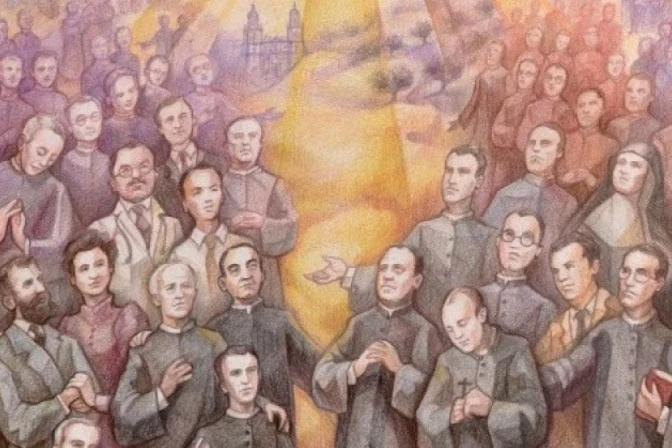

ACI Prensa Staff, Dec 12, 2025 / 16:03 pm (CNA).
The Diocese of Jaén in Spain will celebrate on Dec. 13 the beatification of 109 priests, 14 laypeople, and one Poor Clare nun martyred during the Spanish Civil War.
With the addition of these 124 new blesseds, the number of 20th-century martyrs in Spain recognized by the Catholic Church rises to 2,254, 11 of whom have been canonized.
The beatification ceremony will be presided over by Cardinal Marcello Semeraro, prefect of the Dicastery for the Causes of Saints, and will take place in Assumption Cathedral in Jaén, where some of the new blesseds spent their last days before being murdered out of hatred for the faith.
Bishop Sebastián Chico of Jaén in the pastoral letter published on the occasion of the beatification stated that “their blood, far from being sterile, has become a fertile seed that today nourishes the faith of our parishes, communities, families, and confraternities, and impels us to live Christ more deeply so that we, too, may be witnesses of hope in the midst of the world.”
Chico also shared a reflection on the theological meaning of martyrdom, which he summarized as “the victory of love and the fullness of hope.”
The prelate observed that Scripture “teaches us that blood shed for the love of God is a seed of fidelity, eternal life, and hope.”
Regarding the Catholic Church’s teaching on this mystery of self-sacrifice, Chico noted that each martyr “has been a grace from God for the Church and a rich legacy of charity and hope that we must know and preserve.”
He also emphasized that “martyrdom is the supreme testimony of Christian hope,” because it reminds us that “with the eloquence of their own lives, violence, hatred, or death do not have the last word.”
The bishop of Jaén also pointed out that the martyrs “were not heroes, humanly speaking, nor ideological fighters, nor casualties in a war for earthly interests” but rather men and women “marked by weakness and sin, like any of us, but who conquered evil in the last moment of their lives with the sole strength of an unwavering faith in Christ. Their only weapon was love.”
The Diocese of Jaén is traditionally known as the “Holy Kingdom,” and throughout its history it has been marked by not a few martyrs, from the Roman soldiers Sts. Bonosus and Maximian to St. Potenciana, virgin, the priest St. Amador, and, in the Middle Ages, the bishop St. Peter Pascual.
Along with them, the new blesseds are not the only sons and daughters of the diocese martyred in the 20th century. In addition to a group beatified in Tarragona in 2013, St. Pedro Poveda, founder of the Teresian Institution, stands out: He was murdered in Madrid in 1936.
With the new blesseds, “Jaén sees its name confirmed and enriched: Holy Kingdom. It is not an empty or merely historical title but a profound spiritual truth,” the prelate emphasized.
Of the 124 new blesseds, Chico highlighted three names “as examples of unwavering faith, generous love, and certain hope”: the priest Francisco de Paula Padilla Gutiérrez, who “voluntarily offered to die in place of a father of six children”; the lay doctor Pedro Sandoica y Granados, who “was murdered for publicly confessing his faith, without fear of the consequences, moved by hope in the kingdom of God”; and the widow Obdulia Puchol, a “woman of profound charity who opened her home to transients and the most disadvantaged, and who was shot for her fidelity to Christ, keeping hope alive until her last breath.”
The prelate said he believes the recognition of these martyrs should be considered “as yet another link in the chain of holiness that unites Jaén with the universal Church, from the first Christians to our own day.”
The martyrs, through their lives and their final sacrifice, “are not just a memory of a heroic past but teachers for the present … In this sense, the witness of the martyrs does not belong solely to history; it is a living word that God addresses to the Church and to the society of today.”
Chico emphasized that the martyrs invite us to renew our own hope because they “urge us to live our faith radically, without lukewarmness or compromise”; they teach people “to forgive, always, even in the midst of violence and injustice, following the example of Christ on the cross”; they call the faithful “to be builders of reconciliation and peace”; and they show that “holiness is possible in all vocations.”
This story was first published by ACI Prensa, CNA’s Spanish-language news partner. It has been translated and adapted by CNA.
Read More![Syrian Christians face ‘insecurity’ 1 year after political change - #Catholic -
Two men attacked Mar Elias Church in Al-Duwaileh, in Damascus, Syria, killing 22 people and injuring 59 on June 22, 2025. / Credit: Mohammed Al-Rifai/ACI MENA
Washington, D.C. Newsroom, Dec 12, 2025 / 15:18 pm (CNA).
Here is a roundup of Catholic world news from the past week that you might have missed:Syrian Christians face ‘insecurity’ 1 year after political changeOn the one-year anniversary of the fall of Bashar al-Assad, Syria’s Christians find themselves outside the scope of systematic persecution but still living in profound fragility, CNA’s Arabic-language news partner, ACI MENA, reported.While freedom of worship remains protected and some positive signs have emerged — such as the end of mandatory military service, restoration of Christian properties, and limited political representation — the overall environment remains unstable.Christians continue to face insecurity marked by killings, kidnappings, and vandalism along with several major incidents including attacks on churches in Sweida and the bombing of St. Elias Church in Damascus.Economic hardship persists despite the easing of Western sanctions, driving ongoing emigration and rising fears of continued demographic decline.VP of Haitian bishops’ conference calls for ‘new moral leadership’Haitian Bishops’ Conference Vice President Bishop Pierre-André Dumas of Anse-à-Veau-Miragoâne is calling for “new moral leadership” in the country plagued by violence and instability. Haitians are afflicted by “wounds of poverty, gang violence, insecurity, and the fragility of institutions that should be rebuilt,” the bishop said in an interview with Vatican News.Dumas is currently living in the U.S. while recovering from wounds he incurred during an explosion in Port-au-Prince in February 2024. Asian bishops gather in Hong Kong to discuss pastoral impact of AIAsian bishops gathered in Hong Kong for the Bishops’ Meet 2025 to discuss the pastoral impacts of artificial intelligence (AI) and its use within the Church. The Dec. 11–12 meeting kicked off with an opening Mass celebrated by Cardinal Stephen Chow, SJ, bishop of Hong Kong, who encouraged bishops and communications leaders to embrace AI, stating: “I think AI is not from the devil. AI comes from God, who helps us,” according to Vatican News. Chow urged participants in the conference, organized by the Office of Social Communications of the Federation of Asian Bishops’ Conferences, to discern AI with hope and moral clarity. “Otherwise, how can we call ourselves Catholic media” he said. “When we put our hope in the Lord, we must first honor him, not funding agents or ideologies. We need to discern God’s will for our mission in this shifting context.”Philippines bishop speaks out against societal breakdown and human rights violationsCaritas Philippines President Bishop Gerardo Alminaza is sounding the alarm over increased societal breakdown and human rights violations in the Philippines.“Human rights violations and shrinking civic space in the Philippines are converging into one moral emergency,” he said, according to a local report, noting that “defending life, dissent, environmental stewardship, and democratic participation is becoming increasingly dangerous.” He continued: “As [the] Church, we affirm that human rights and civic space are sacred: We cannot preach peace and justice while ignoring the silencing of communities, the killings of organizers, the disappearances of activists, or the harassment of journalists.”New Catholic church to be built in growing Australian dioceseThe Diocese of Parramatta in Western Sydney has announced that it will build a new Catholic church and precinct in the heart of the rapidly-growing city of Blacktown, where a $2 million development called the Blacktown Quarter is also taking place. In a Dec. 8 pastoral letter announcing the decision, Bishop Vincent Long, OFM Conv, revealed the diocese purchased land within the Blacktown Quarter, “with a view to creating a Catholic presence.” It will include a new church called Mary Queen of the Family Parish situated in the heart of the Blacktown shopping precinct that will consolidate two preexisting parishes. “Being in the center of civic life is a providential opportunity for evangelization, mission, and service,” Long said. Christian group in India joins protest against designation of major religions as tribal The United Christian Forum of Dima Hasao in India has joined a tribal students’ group in protesting against the provincial government in the northeast state of Assam for designating six dominant religions as having ethnic tribal status. Rev. D.C. Haia Darnei, president of the forum, said the decision would “certainly prove a setback for genuine tribal people, including those who are Christians,” according to a UCA News report. “We are with the tribal students’ organization and other tribal groups as their demand is genuine, and we want betterment of the real tribal people in the state,” he said. According to the report, Christians make up about 3.74% of the state’s 31 million people, while tribal groups make up roughly 20%.Pauline Sisters in Nairobi launch children’s literary event to foster love of readingMembers of the Pious Society of the Daughters of St. Paul (FSP/Pauline Sisters) in Africa are organizing their first-ever children’s literary event as they seek to nurture knowledge and foster a love for reading among children, ACI Africa, CNA’s news partner in Africa, reported. In an interview with ACI Africa ahead of the event scheduled to take place on Dec. 13 at the Daughters of St. Paul premises in Westlands, Nairobi, the directress of Paulines Publications Africa, Sister Praxides Nafula, said: “We are including all children because we aim to nurture knowledge and a love for reading.” “We want the pages of the book to come alive, as if the book is talking to the children,” she said.The event will cater to children from underprivileged communities throughout the Archdiocese of Nairobi, with some refugee children from Tanzania expected to attend.](http://unitedyam.com/wp-content/uploads/2025/12/syrian-christians-face-insecurity-1-year-after-political-change-catholic-two-men-attacked-mar-elias-church-in-al-duwaileh-in-damascus-syria-killing-22-people-and-injuring.webp)

Washington, D.C. Newsroom, Dec 12, 2025 / 15:18 pm (CNA).
Here is a roundup of Catholic world news from the past week that you might have missed:
On the one-year anniversary of the fall of Bashar al-Assad, Syria’s Christians find themselves outside the scope of systematic persecution but still living in profound fragility, CNA’s Arabic-language news partner, ACI MENA, reported.
While freedom of worship remains protected and some positive signs have emerged — such as the end of mandatory military service, restoration of Christian properties, and limited political representation — the overall environment remains unstable.
Christians continue to face insecurity marked by killings, kidnappings, and vandalism along with several major incidents including attacks on churches in Sweida and the bombing of St. Elias Church in Damascus.
Economic hardship persists despite the easing of Western sanctions, driving ongoing emigration and rising fears of continued demographic decline.
Haitian Bishops’ Conference Vice President Bishop Pierre-André Dumas of Anse-à-Veau-Miragoâne is calling for “new moral leadership” in the country plagued by violence and instability.
Haitians are afflicted by “wounds of poverty, gang violence, insecurity, and the fragility of institutions that should be rebuilt,” the bishop said in an interview with Vatican News.
Dumas is currently living in the U.S. while recovering from wounds he incurred during an explosion in Port-au-Prince in February 2024.
Asian bishops gathered in Hong Kong for the Bishops’ Meet 2025 to discuss the pastoral impacts of artificial intelligence (AI) and its use within the Church.
The Dec. 11–12 meeting kicked off with an opening Mass celebrated by Cardinal Stephen Chow, SJ, bishop of Hong Kong, who encouraged bishops and communications leaders to embrace AI, stating: “I think AI is not from the devil. AI comes from God, who helps us,” according to Vatican News.
Chow urged participants in the conference, organized by the Office of Social Communications of the Federation of Asian Bishops’ Conferences, to discern AI with hope and moral clarity.
“Otherwise, how can we call ourselves Catholic media” he said. “When we put our hope in the Lord, we must first honor him, not funding agents or ideologies. We need to discern God’s will for our mission in this shifting context.”
Caritas Philippines President Bishop Gerardo Alminaza is sounding the alarm over increased societal breakdown and human rights violations in the Philippines.
“Human rights violations and shrinking civic space in the Philippines are converging into one moral emergency,” he said, according to a local report, noting that “defending life, dissent, environmental stewardship, and democratic participation is becoming increasingly dangerous.”
He continued: “As [the] Church, we affirm that human rights and civic space are sacred: We cannot preach peace and justice while ignoring the silencing of communities, the killings of organizers, the disappearances of activists, or the harassment of journalists.”
The Diocese of Parramatta in Western Sydney has announced that it will build a new Catholic church and precinct in the heart of the rapidly-growing city of Blacktown, where a $2 million development called the Blacktown Quarter is also taking place.
In a Dec. 8 pastoral letter announcing the decision, Bishop Vincent Long, OFM Conv, revealed the diocese purchased land within the Blacktown Quarter, “with a view to creating a Catholic presence.”
It will include a new church called Mary Queen of the Family Parish situated in the heart of the Blacktown shopping precinct that will consolidate two preexisting parishes. “Being in the center of civic life is a providential opportunity for evangelization, mission, and service,” Long said.
The United Christian Forum of Dima Hasao in India has joined a tribal students’ group in protesting against the provincial government in the northeast state of Assam for designating six dominant religions as having ethnic tribal status.
Rev. D.C. Haia Darnei, president of the forum, said the decision would “certainly prove a setback for genuine tribal people, including those who are Christians,” according to a UCA News report.
“We are with the tribal students’ organization and other tribal groups as their demand is genuine, and we want betterment of the real tribal people in the state,” he said. According to the report, Christians make up about 3.74% of the state’s 31 million people, while tribal groups make up roughly 20%.
Members of the Pious Society of the Daughters of St. Paul (FSP/Pauline Sisters) in Africa are organizing their first-ever children’s literary event as they seek to nurture knowledge and foster a love for reading among children, ACI Africa, CNA’s news partner in Africa, reported.
In an interview with ACI Africa ahead of the event scheduled to take place on Dec. 13 at the Daughters of St. Paul premises in Westlands, Nairobi, the directress of Paulines Publications Africa, Sister Praxides Nafula, said: “We are including all children because we aim to nurture knowledge and a love for reading.”
“We want the pages of the book to come alive, as if the book is talking to the children,” she said.
The event will cater to children from underprivileged communities throughout the Archdiocese of Nairobi, with some refugee children from Tanzania expected to attend.
Read More
The new discount applies to 12 top North American ski resorts for guests who book four weeks in advance.
Read More

CNA Staff, Dec 12, 2025 / 09:41 am (CNA).
Bishop Michael Olson of the Diocese of Fort Worth, Texas, has announced the opening of a new order of Discalced Carmelite nuns after an older one in the diocese lost its canonical status last year.
Olson announced the news of the opening in a letter on Dec. 2 in which he said the Vatican’s Dicastery for Institutes of Consecrated Life and Societies of Apostolic Life gave permission for the new monastery.
The prelate described it as “a moment of extraordinary grace for our local Church.”
In an interview with CNA, Olson said there has been “a need in our diocese for prayers, for reparation of sin … and through adoration and contemplation and meditation, to pray for all of those intentions — that is the vocation of the new Carmel.”
Olson said that about six months ago he requested that a new order of nuns come to reside in the diocese from the Christ the King Association of Discalced Carmelite Monasteries in the U.S.A.
After making a formal request for permission from the Holy See in October, he received word in November that the Holy See approved the establishment of the new monastery.
The nuns are coming from the Carmel in Lake Elmo, Minnesota.
The bishop emphasized that the Carmel “is an autonomous body even though I have supervisory rights.”
He said the land was “donated generously by the faithful in the diocese” after he acted as an intermediary between the sisters and parishioners.
Asked when he believes the monastery, located in a rural part of northern Cooke County about 80 miles north of Dallas, will be completed, he replied: “That’s in God’s time.”
He said the sisters will not have a website “because it’s a distraction from their religious life. Social media can have adverse effects on a religious vocation, as we have seen.”
Olson told CNA he is “very grateful to the Holy See for this permission, but also to the religious sisters, the nuns who have given of themselves to Christ. It’s a very unique vocation.”
The bishop is encouraging people to be generous with the sisters as they establish their new home in the Fort Worth Diocese: “They’re in full communion with the Church, are rightly ordered in their Carmelite vocation.”
In 2023, a public scandal erupted after Olson began an investigation of an alleged relationship of a sexual nature between the former prioress of the Discalced Carmelite nuns of Arlington, Rev. Mother Teresa Agnes Gerlach, and a priest outside the diocese.
Gerlach denied the allegation and accused Olson of overstepping his authority while seeking to obtain the nuns’ property located in the Dallas-Fort Worth metroplex. Olson has denied both claims.
The scandal played out in the press through actions taken by the Vatican, lawsuits in civil courts, and through public statements on both sides.
Last December, the Vatican issued a decree of suppression of the Arlington Carmelite monastery.
Olson announced the suppression just over a year ago, on Dec. 2, 2024, emphasizing at the time that the women at the monastery “are neither nuns nor Carmelites despite their continued and public self-identification to the contrary.”
He added that the Holy See “suppressed the monastery, so it exists no longer, despite any public self-identification made to the contrary by the former nuns who continue to occupy the premises.”
In August of that year, the nuns posted on their website that they had joined the Society of St. Pius X, a group that is in an “irregular” canonical situation within the Church.
In his most recent letter announcing the new monastery, Olson said it “will be a place where the beauty of contemplative life radiates outward into the world. Through prayer, silence, work, and sacrifice, the Discalced Carmelite nuns will accompany the faithful and intercede for the needs of our communities.”
“I ask all the faithful of the diocese to join me in prayer for these nuns as they begin this new chapter in their vocation,” the bishop said.
“May their vocation bring forth many graces including priestly and religious vocations, holy and happy marriages, and faithful discipleship,” he added.
Read MoreMark Hanson/Warren Keller Located 5,000 light-years away, the billowing star-forming region NGC 6559 (lower right) lies less than a degree east of the more frequently photographed Lagoon Nebula (M8). It is accompanied by the emission nebula IC 4685 (center), which itself is threaded by the dark nebulae Barnard 302/3, appearing to some like a dragonContinue reading “East of the Lagoon”
The post East of the Lagoon appeared first on Astronomy Magazine.
Read More

Webb’s image of the enormous stellar jet in Sh2-284 provides evidence that protostellar jets scale with the mass of their parent stars—the more massive the stellar engine driving the plasma, the larger the resulting jet.
Read More![Florham Park Catholic helps coordinate law school’s first Eucharistic procession #Catholic - Before Nov. 23, no one at Ave Maria Law School in Naples, Fla., a Catholic institution, had ever seen such a glorious sight: an outdoor Eucharistic procession of 100 young students crossing the campus and praying behind the Blessed Sacrament carried under an embroidered canopy.
On that sunny day, Ave Maria Law’s first-ever Eucharistic procession graced Catholic men and women on campus with the opportunity to gather in prayer for the Feast of Christ the King. The event started with Mass and concluded with Benediction. Michael Ippolito, a law student there and parishioner of Holy Family in Florham Park, N.J., proposed the idea and helped organize and participated in the procession.
Ippolito, 24, is part of a growing movement of young U.S. Catholics deepening their commitment in strong faith communities. A Harvard University Cooperative Election Study showed a jump in Gen Z Americans identifying as Catholic, from 15 percent in 2022 to 21 percent in 2023, with young men leading the trend. Ippolito’s faith has blossomed into evangelization — bringing Christ into the world — as an active community member and writer.
Ippolito said he was “honored” to take part in the procession, helping students celebrate and reclaim their Catholic heritage in public.
“It was a moving experience that allowed Christ to be brought to the depths of the law school. The moment captured the essence of the law school’s mission of Fides et Ratio [Faith and Reason]. I hope that the law school will continue this tradition, and continue in its mission of forming great lawyers and Catholic disciples,” said Ippolito, in his second year of law school with a concentration in Natural Law.
Click here to subscribe to our weekly newsletter.
Raised in a devout family, Ippolito began his faith journey in earnest in his teens, when “God was an afterthought,” and grew through several milestones. While a student at Seton Hall Prep in West Orange, N.J., he encountered Christ in theology classes and at a men’s retreat, where he spent “intimate time” with him in prayer and worship, and was inspired by the testimonies of students and teachers.
“I learned that Jesus loved me and how to bring my faith into the world. It was a ‘Come to God moment’ for me,” Ippolito said.
Later, Ippolito found a community of fellow young Catholics serious about their faith as a student of the Catholic University of America in Washington, D.C. He experienced a deeper conversion attending the Traditional Latin Mass in a faith that remains constant.
“In our generation, nothing is stable. We are told lies about careers and relationships, including non-marital sex. People wrongly say, ‘God is a loving God, so I don’t have to change,’” said Ippolito, who was in the Knights of Columbus at Catholic University. He earned a bachelor’s degree in politics with minors in history and theology in 2023. “In college, I began questioning, ‘Am I living life the way God wants me to live?’”
At Ave Maria Law, Ippolito belongs to the Knights of Columbus, Legion of Mary, and St. Thomas More Society. He suggested the procession to Father David Pignato, the school’s chaplain. The priest said he “supports the Catholic revival at Ave Maria Law.”
Ippolito also has written about history and contemporary politics from a Catholic perspective for publications such as Crisis Magazine and The Daily Signal to get his opinion “out into the larger conversation.”
Growing up, Ippolito attended weekly Mass at Holy Family with his family: his father, Tobi, an internist; his mother, Anne, a master’s degree candidate in systematic theology at Seton Hall University in South Orange, N.J.; his brother, Tony, 27, a medical student; and his sister, Jessica, 23, a college student. Tobi is studying for the permanent diaconate of the Paterson Diocese in New Jersey and anticipates being ordained next year.
“I’m inspired by the fact that my dad has taken up the duty to serve the Church. His diaconate studies have been a gift. As a family, we are now all closer to our faith,” Ippolito said.
Follow Ippolito on @mikeipps and Substack@michaeljippolito](http://unitedyam.com/wp-content/uploads/2025/12/florham-park-catholic-helps-coordinate-law-schools-first-eucharistic-procession-catholic-before-nov-23-no-one-at-ave-maria-law-school-in-naples-fla-a-catholic-institution-had-ever-se.jpg)
Florham Park Catholic helps coordinate law school’s first Eucharistic procession #Catholic – ![]()
Before Nov. 23, no one at Ave Maria Law School in Naples, Fla., a Catholic institution, had ever seen such a glorious sight: an outdoor Eucharistic procession of 100 young students crossing the campus and praying behind the Blessed Sacrament carried under an embroidered canopy.
On that sunny day, Ave Maria Law’s first-ever Eucharistic procession graced Catholic men and women on campus with the opportunity to gather in prayer for the Feast of Christ the King. The event started with Mass and concluded with Benediction. Michael Ippolito, a law student there and parishioner of Holy Family in Florham Park, N.J., proposed the idea and helped organize and participated in the procession.
Ippolito, 24, is part of a growing movement of young U.S. Catholics deepening their commitment in strong faith communities. A Harvard University Cooperative Election Study showed a jump in Gen Z Americans identifying as Catholic, from 15 percent in 2022 to 21 percent in 2023, with young men leading the trend. Ippolito’s faith has blossomed into evangelization — bringing Christ into the world — as an active community member and writer.
Ippolito said he was “honored” to take part in the procession, helping students celebrate and reclaim their Catholic heritage in public.
“It was a moving experience that allowed Christ to be brought to the depths of the law school. The moment captured the essence of the law school’s mission of Fides et Ratio [Faith and Reason]. I hope that the law school will continue this tradition, and continue in its mission of forming great lawyers and Catholic disciples,” said Ippolito, in his second year of law school with a concentration in Natural Law.
Raised in a devout family, Ippolito began his faith journey in earnest in his teens, when “God was an afterthought,” and grew through several milestones. While a student at Seton Hall Prep in West Orange, N.J., he encountered Christ in theology classes and at a men’s retreat, where he spent “intimate time” with him in prayer and worship, and was inspired by the testimonies of students and teachers.
“I learned that Jesus loved me and how to bring my faith into the world. It was a ‘Come to God moment’ for me,” Ippolito said.
Later, Ippolito found a community of fellow young Catholics serious about their faith as a student of the Catholic University of America in Washington, D.C. He experienced a deeper conversion attending the Traditional Latin Mass in a faith that remains constant.
“In our generation, nothing is stable. We are told lies about careers and relationships, including non-marital sex. People wrongly say, ‘God is a loving God, so I don’t have to change,’” said Ippolito, who was in the Knights of Columbus at Catholic University. He earned a bachelor’s degree in politics with minors in history and theology in 2023. “In college, I began questioning, ‘Am I living life the way God wants me to live?’”
At Ave Maria Law, Ippolito belongs to the Knights of Columbus, Legion of Mary, and St. Thomas More Society. He suggested the procession to Father David Pignato, the school’s chaplain. The priest said he “supports the Catholic revival at Ave Maria Law.”
Ippolito also has written about history and contemporary politics from a Catholic perspective for publications such as Crisis Magazine and The Daily Signal to get his opinion “out into the larger conversation.”
Growing up, Ippolito attended weekly Mass at Holy Family with his family: his father, Tobi, an internist; his mother, Anne, a master’s degree candidate in systematic theology at Seton Hall University in South Orange, N.J.; his brother, Tony, 27, a medical student; and his sister, Jessica, 23, a college student. Tobi is studying for the permanent diaconate of the Paterson Diocese in New Jersey and anticipates being ordained next year.
“I’m inspired by the fact that my dad has taken up the duty to serve the Church. His diaconate studies have been a gift. As a family, we are now all closer to our faith,” Ippolito said.
Follow Ippolito on @mikeipps and Substack@michaeljippolito
– ![]() Before Nov. 23, no one at Ave Maria Law School in Naples, Fla., a Catholic institution, had ever seen such a glorious sight: an outdoor Eucharistic procession of 100 young students crossing the campus and praying behind the Blessed Sacrament carried under an embroidered canopy. On that sunny day, Ave Maria Law’s first-ever Eucharistic procession graced Catholic men and women on campus with the opportunity to gather in prayer for the Feast of Christ the King. The event started with Mass and concluded with Benediction. Michael Ippolito, a law student there and parishioner of Holy Family in Florham Park, N.J.,
Before Nov. 23, no one at Ave Maria Law School in Naples, Fla., a Catholic institution, had ever seen such a glorious sight: an outdoor Eucharistic procession of 100 young students crossing the campus and praying behind the Blessed Sacrament carried under an embroidered canopy. On that sunny day, Ave Maria Law’s first-ever Eucharistic procession graced Catholic men and women on campus with the opportunity to gather in prayer for the Feast of Christ the King. The event started with Mass and concluded with Benediction. Michael Ippolito, a law student there and parishioner of Holy Family in Florham Park, N.J.,
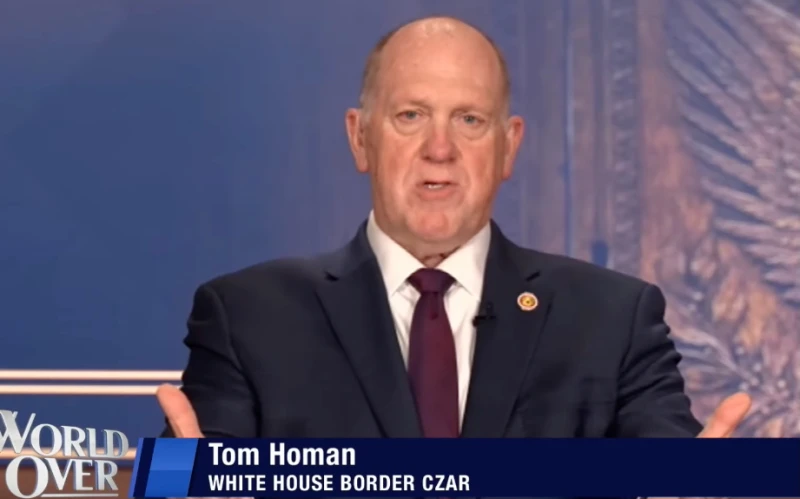

Washington, D.C. Newsroom, Dec 12, 2025 / 07:00 am (CNA).
U.S. border czar Tom Homan said “the Catholic Church should support keeping the community safe” through a secure border and immigration enforcement.
In an interview on “The World Over with Raymond Arroyo” on Thursday, Homan discussed President Donald Trump’s mass deportation policy and immigration enforcement.
“As President Trump promised on day one, we’re going to enforce immigration law,” Homan said. “That’s what he was voted into office to do, and that’s what we’re doing. We’re going to keep this promise to the American people.”
“We’re going to prioritize public safety threats and national security threats,” Homan said. “The majority of people we arrest … have a criminal history. But also, like I’ve said from day one, if you’re in the country illegally, you’re not off the table.”
Data on detainees’ criminal history is disputed. A Cato Institute report in November said 5% of people detained by ICE have violent convictions, and 73% had no convictions. Other analyses of deportation data also have shown a lower incidence of people arrested with prior criminal convictions.
“Many people who’ve lived for years and years and years, never causing problems, have been deeply affected by what’s going on right now,” Pope Leo XIV said Nov. 4.
Since President Trump began his second term, there have been about 600,000 deportations, Homan said. He added: The “results have been outstanding.”
During the Biden administration, “just about a half a million children were smuggled into the country, separated from their families, put in the hands of criminal cartels,” Homan said. Homan said the administration has located tens of thousands of children during deportation operations.
During the first two years of Trump’s first administration, U.S. authorities separated over 5,000 children from their parents at the U.S.-Mexico border, before ending the practice. In 2021, the Biden administration created a family reunification task force, and a federal judge ruled that border officials cannot use family separation as a deterrence tactic through 2031.
Under the second Trump administration, enforcement actions have caused family separations through detentions.
Homan told Arroyo: “President Trump promised from day one that we’re going to find these children because the last administration, even though half a million came across, they lost track of 300,000. They couldn’t find them. They weren’t responding to inquiries and their check-ins.”
As of Dec. 5 there were 62,456 children “the Trump administration already found,” Homan reported.
“Some of these children were safe and with family. They’re just hiding out because they don’t want to be deported. But many of these children, and one is too many, we found were either in forced labor or forced sexual slavery. Some of these children are in really, really bad conditions,” Homan said.
“About half that, 300,000, according to records, have already aged out, which means they’re over 18 already. But … we’re still going to try to locate them … We’re going to do everything we can till the last day of this administration to find these kids. Personally, I’ll do everything I can until I take my last breath on this Earth to find these kids,” Homan said.
The United States Conference of Catholic Bishops (USCCB) expressed concern “about the conditions in detention centers and the lack of access to pastoral care.” They wrote: “Human dignity and national security are not in conflict.”
When asked how he reconciles bishops’ comments on immigration enforcement with his faith and duties, Homan said he is “willing to sit down with anybody in the Catholic Church and talk about it.”
When Catholic leaders “talk about why these laws shouldn’t be enforced … they need to understand, if we don’t enforce laws, what message does that send to the world?” Homan said. He says it sends the message: “Cross the border. It’s illegal, but don’t worry about it.”
People need to understand “a border wall saves lives,” Homan said. “I would ask the Catholic leadership, go talk to the hundreds of… moms and dads that have buried their children because their children were killed by someone that wasn’t supposed to be here.”
During Biden’s presidency, Homan said “a record number of Americans died from fentanyl because that border was wide open … Hundreds of thousands of Americans died from a drug that came across an open border.”
He said a “record number of people from terrorist-related countries” entered the country and said there was “historic increase in sex trafficking of women and children because enforcement was removed from the border.”
“Over 4,000 aliens died making that journey, because we sent a message that there’s no consequences here,” Homan said.
The USCCB through remarks and messages has called for humane treatment of migrants. In response, Homan said: “We treat everybody with dignity.”
Bishops also stated their opposition to “the indiscriminate mass deportation of people.”
Homan said: “When you come across the border illegally, not only is it a crime, but you’re cheating the system.”
“There are millions of people, millions that are standing in line, taking their test, doing the background investigation, paying their fees to be part of the greatest nation on Earth,” Homan said.
“The most humane thing you can do is enforce the law, secure the border, because it saves lives. The Catholic Church should support keeping the community safe again. But I’m saying this, if you’re in the country legally, it’s not OK. Illegal migration is not a victimless crime. I wish Catholic leadership would go with me. Take a border trip with me,” Homan said.
“Look at some of the investigations I do. Wear my shoes … You may not agree with me 100% in the end, but you will certainly understand the importance of border security,” Homan said.
Read More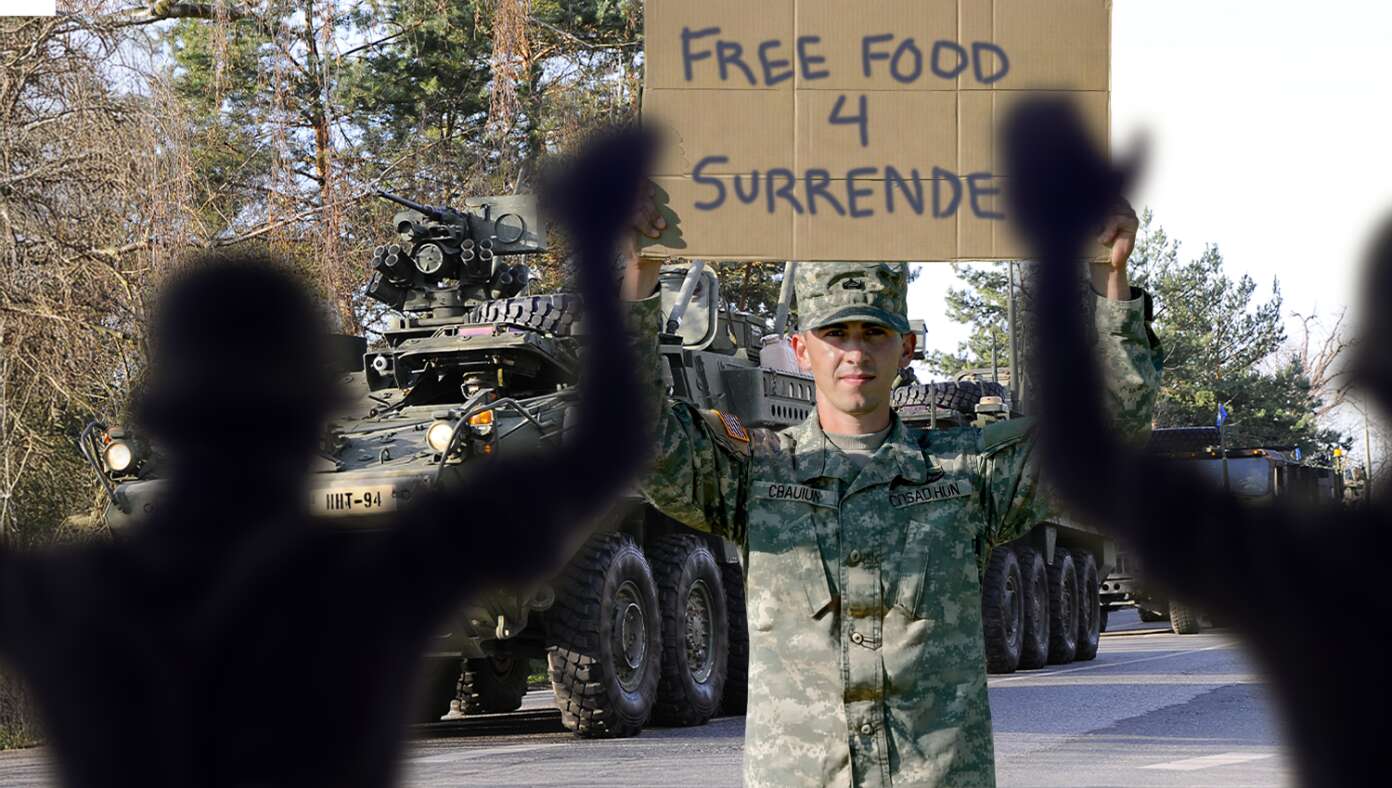
VENEZUELA — In a remarkable demonstration of martial superiority, the United States military just forced an unconditional surrender out of the entire Venezuelan army just by offering them some food.
Read More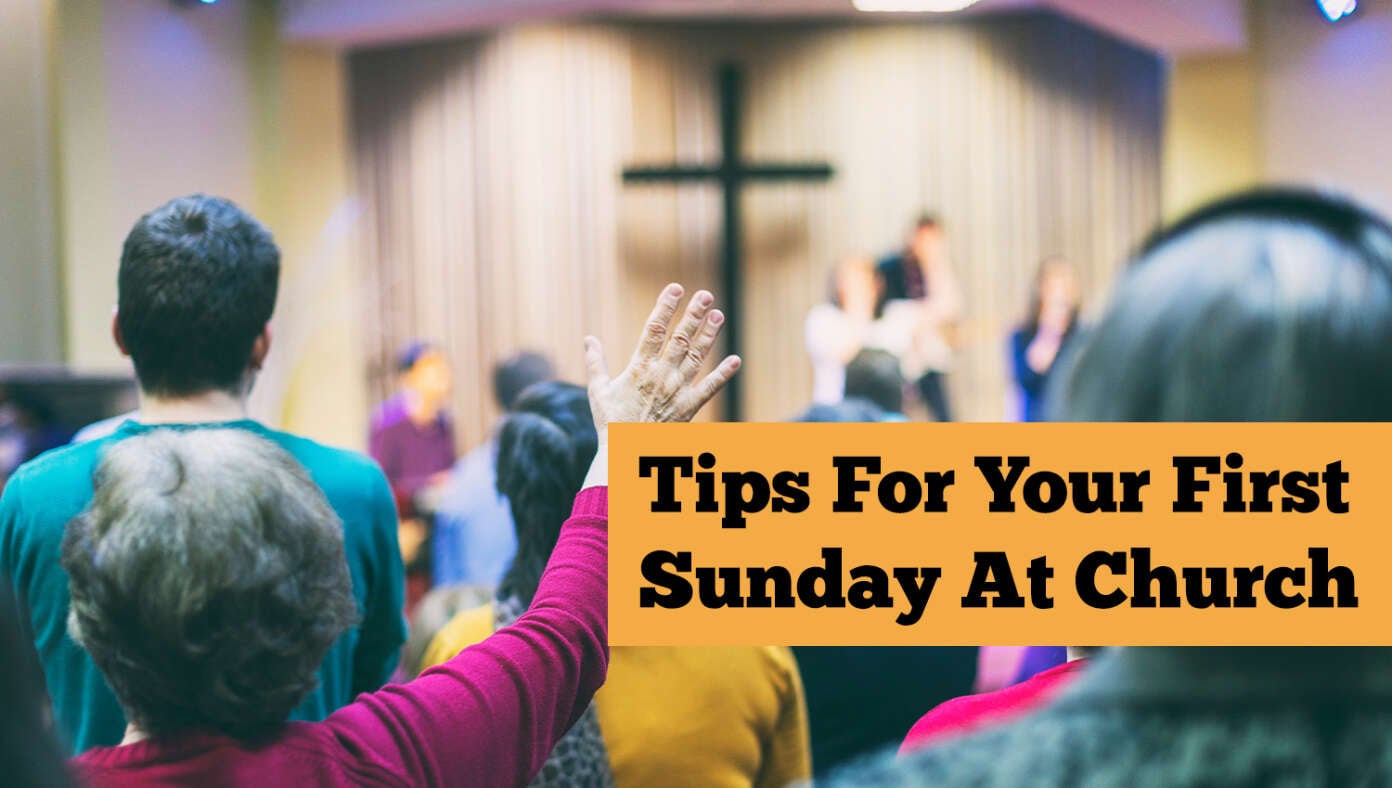
Attending a church for the first time can be a daunting experience. If this is the first time you’re attending church this Sunday, try not to stress too much about what it’ll be like to be in an entirely new place surrounded by people you don’t know. Just follow these handy tips, and you’ll be just fine.
Read More